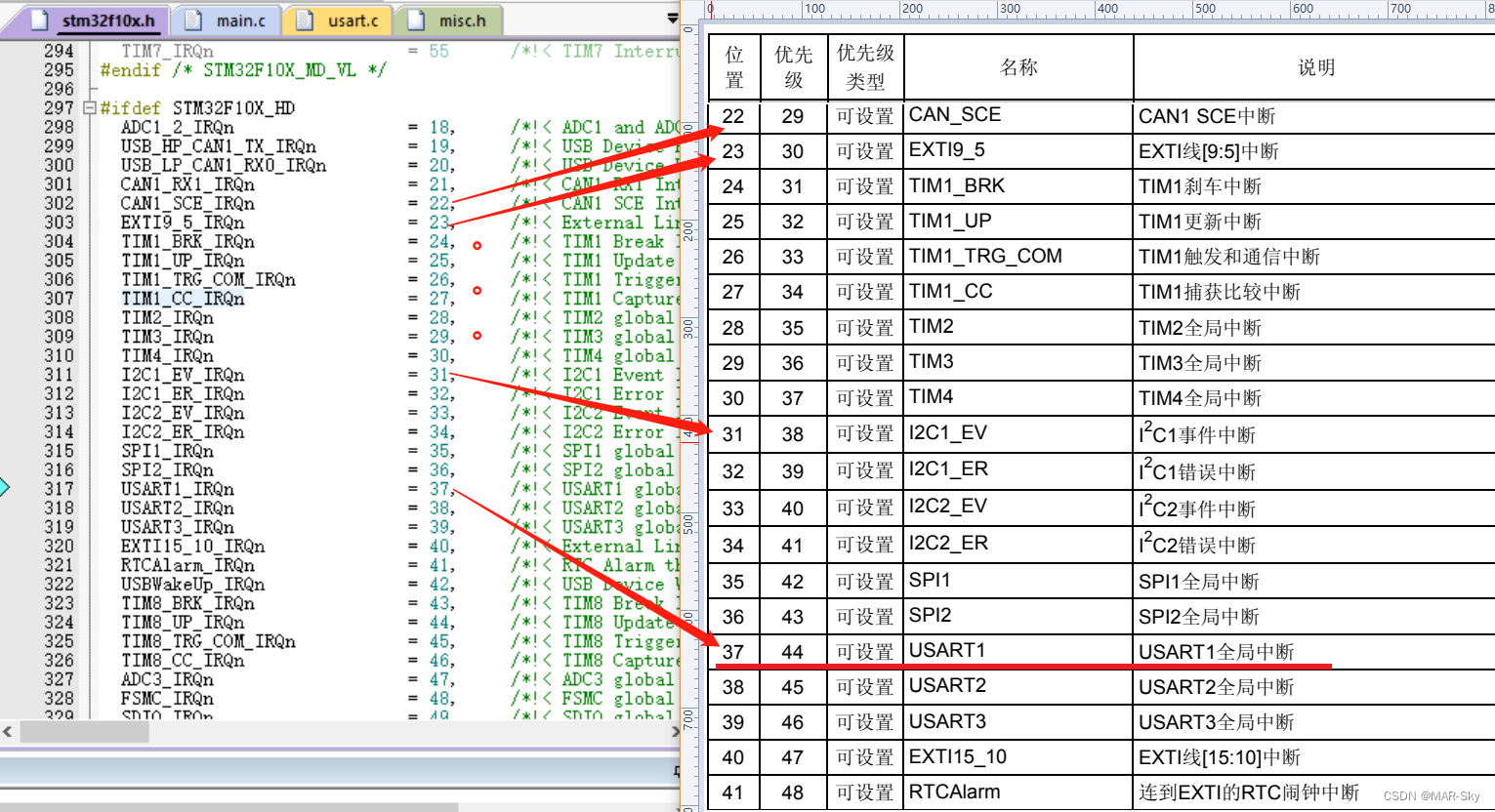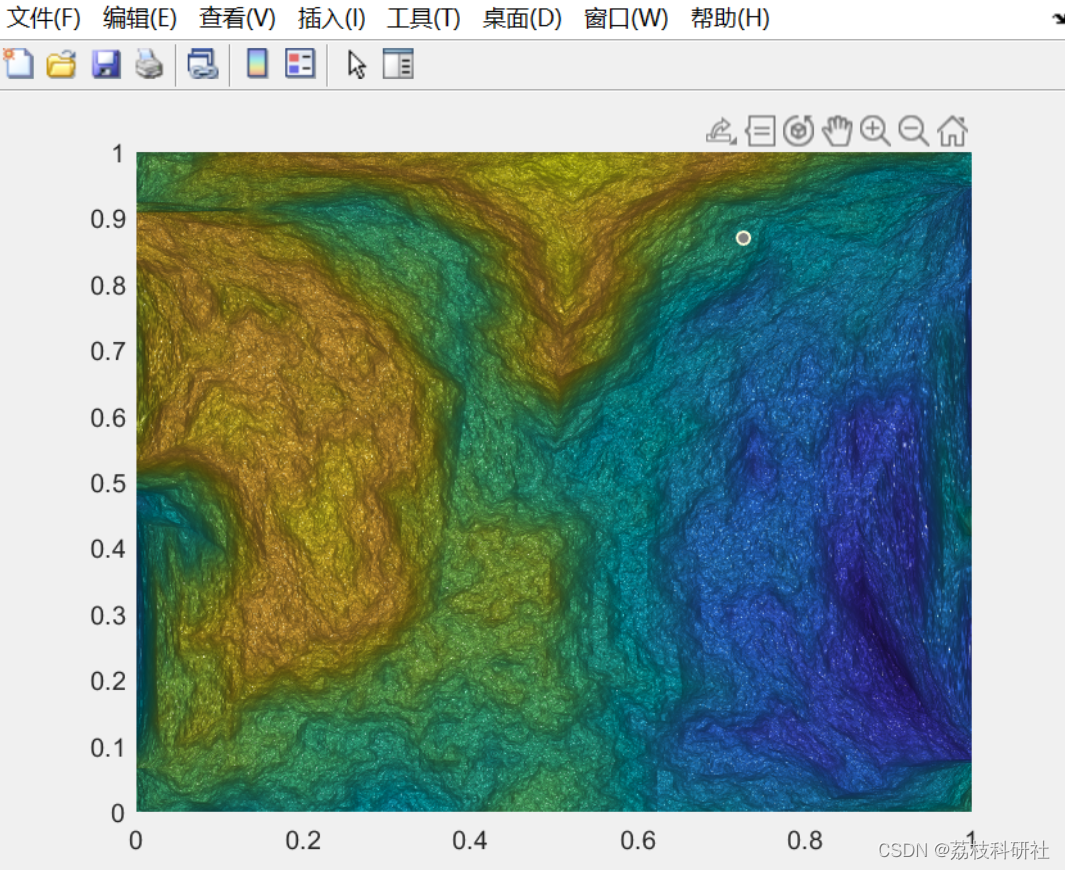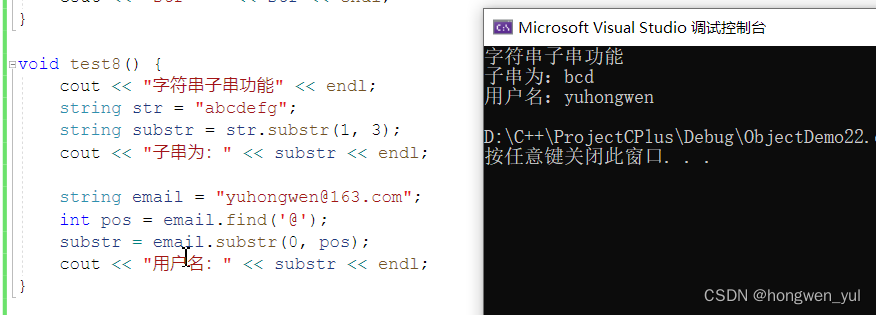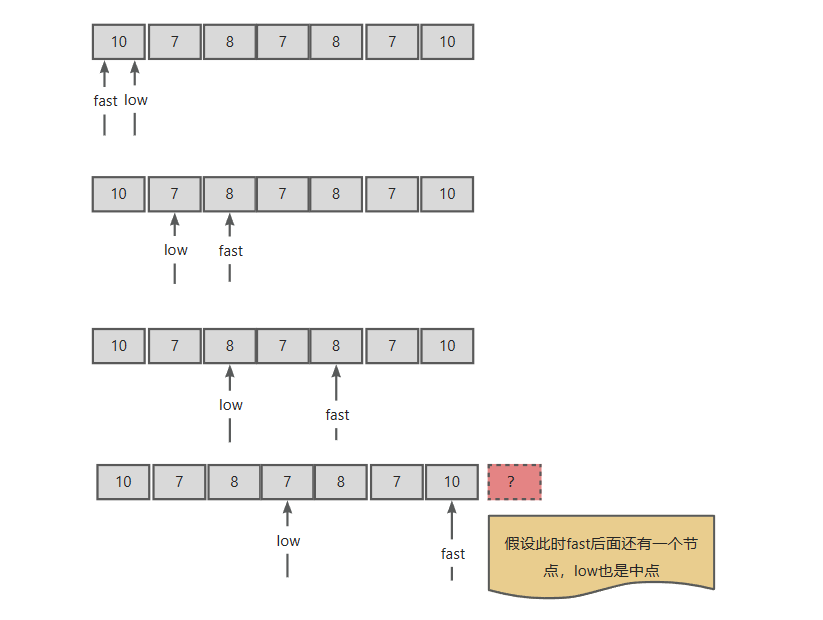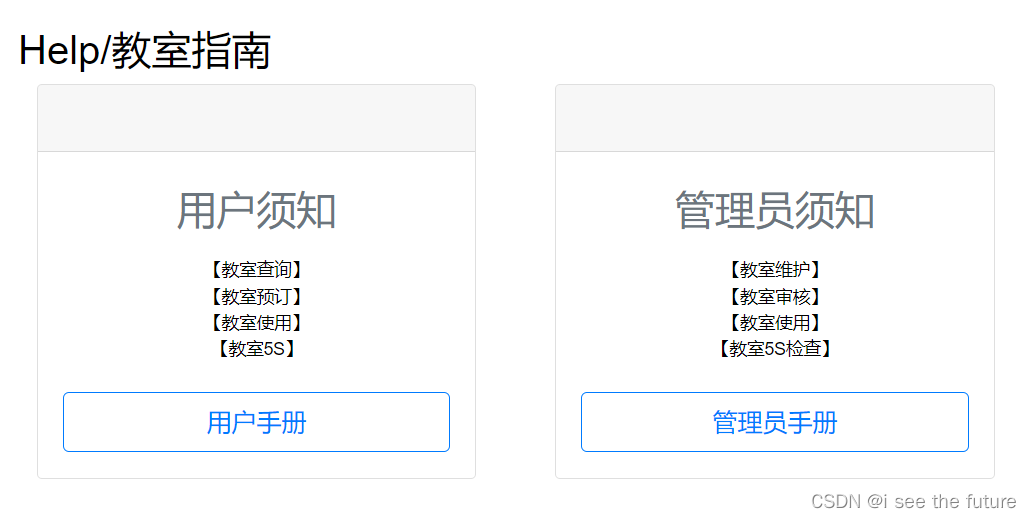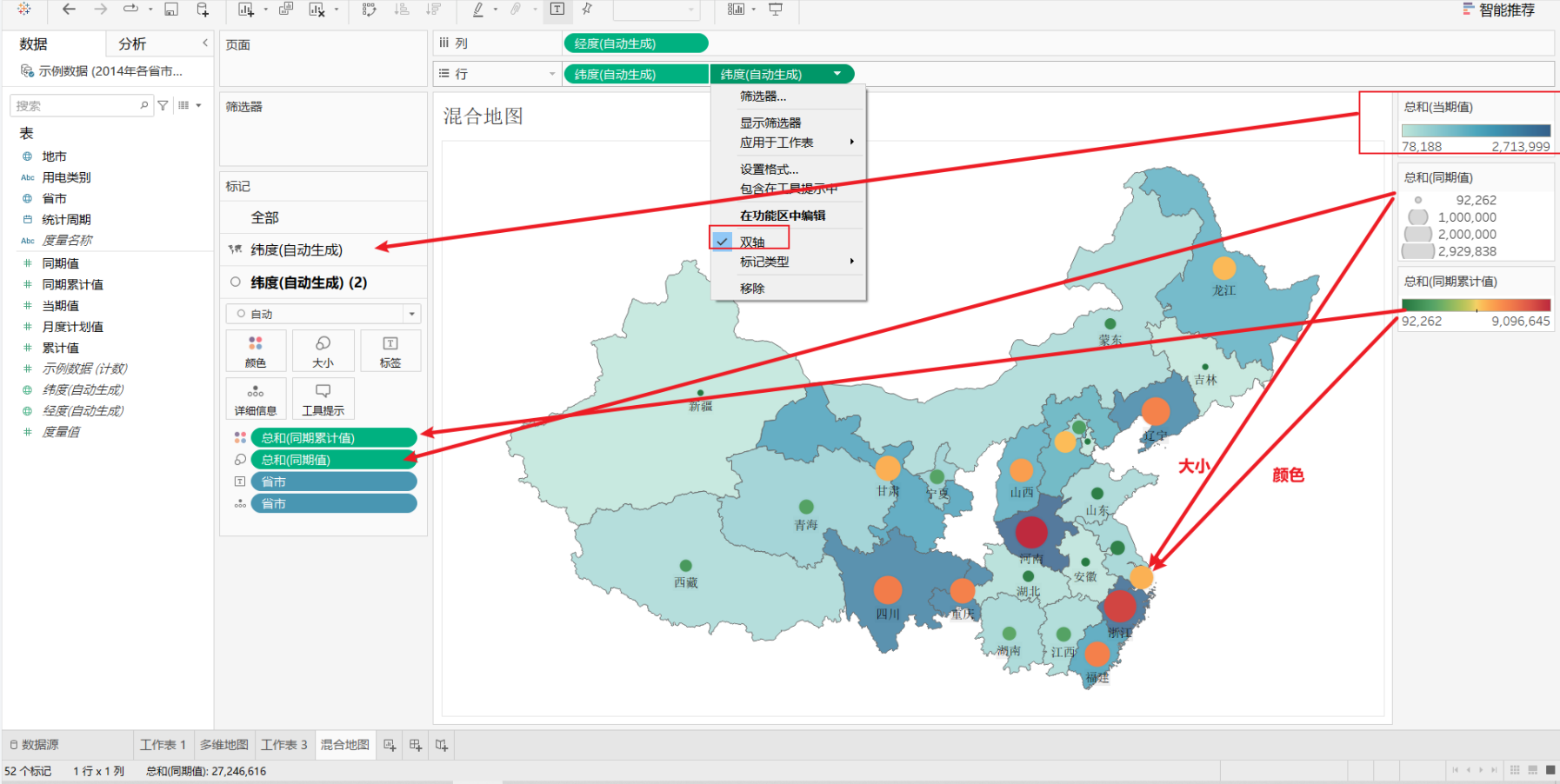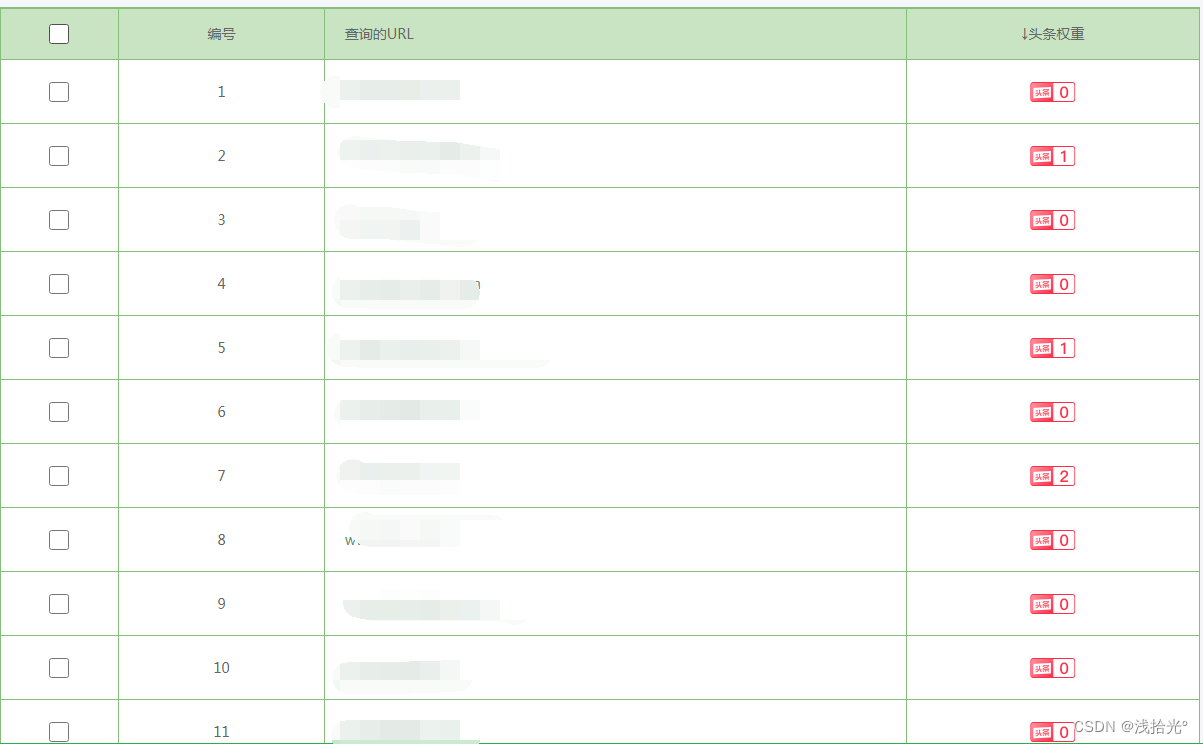
上一篇链接:
Python pandas有好几百个库函数,你都用过吗(2)_Hann Yang的博客-CSDN博客
R(read_): Function26~45
Types['Function'][25:45]
['read_clipboard', 'read_csv', 'read_excel', 'read_feather', 'read_fwf', 'read_gbq', 'read_hdf', 'read_html', 'read_json', 'read_orc', 'read_parquet', 'read_pickle', 'read_sas', 'read_spss', 'read_sql', 'read_sql_query', 'read_sql_table', 'read_stata', 'read_table', 'read_xml']Function26 read_clipboard()
Help on function read_clipboard in module pandas.io.clipboards:
read_clipboard(sep='\\s+', **kwargs)
Read text from clipboard and pass to read_csv.
Parameters
----------
sep : str, default '\s+'
A string or regex delimiter. The default of '\s+' denotes
one or more whitespace characters.
**kwargs
See read_csv for the full argument list.
Returns
-------
DataFrame
A parsed DataFrame object.
Function27 read_csv()
Help on function read_csv in module pandas.io.parsers.readers:
read_csv(filepath_or_buffer: 'FilePathOrBuffer', sep=<no_default>, delimiter=None, header='infer', names=<no_default>, index_col=None, usecols=None, squeeze=False, prefix=<no_default>, mangle_dupe_cols=True, dtype: 'DtypeArg | None' = None, engine=None, converters=None, true_values=None, false_values=None, skipinitialspace=False, skiprows=None, skipfooter=0, nrows=None, na_values=None, keep_default_na=True, na_filter=True, verbose=False, skip_blank_lines=True, parse_dates=False, infer_datetime_format=False, keep_date_col=False, date_parser=None, dayfirst=False, cache_dates=True, iterator=False, chunksize=None, compression='infer', thousands=None, decimal: 'str' = '.', lineterminator=None, quotechar='"', quoting=0, doublequote=True, escapechar=None, comment=None, encoding=None, encoding_errors: 'str | None' = 'strict', dialect=None, error_bad_lines=None, warn_bad_lines=None, on_bad_lines=None, delim_whitespace=False, low_memory=True, memory_map=False, float_precision=None, storage_options: 'StorageOptions' = None)
Read a comma-separated values (csv) file into DataFrame.
Also supports optionally iterating or breaking of the file
into chunks.
Additional help can be found in the online docs for
`IO Tools <https://pandas.pydata.org/pandas-docs/stable/user_guide/io.html>`_.
Parameters
----------
filepath_or_buffer : str, path object or file-like object
Any valid string path is acceptable. The string could be a URL. Valid
URL schemes include http, ftp, s3, gs, and file. For file URLs, a host is
expected. A local file could be: file://localhost/path/to/table.csv.
If you want to pass in a path object, pandas accepts any ``os.PathLike``.
By file-like object, we refer to objects with a ``read()`` method, such as
a file handle (e.g. via builtin ``open`` function) or ``StringIO``.
sep : str, default ','
Delimiter to use. If sep is None, the C engine cannot automatically detect
the separator, but the Python parsing engine can, meaning the latter will
be used and automatically detect the separator by Python's builtin sniffer
tool, ``csv.Sniffer``. In addition, separators longer than 1 character and
different from ``'\s+'`` will be interpreted as regular expressions and
will also force the use of the Python parsing engine. Note that regex
delimiters are prone to ignoring quoted data. Regex example: ``'\r\t'``.
delimiter : str, default ``None``
Alias for sep.
header : int, list of int, default 'infer'
Row number(s) to use as the column names, and the start of the
data. Default behavior is to infer the column names: if no names
are passed the behavior is identical to ``header=0`` and column
names are inferred from the first line of the file, if column
names are passed explicitly then the behavior is identical to
``header=None``. Explicitly pass ``header=0`` to be able to
replace existing names. The header can be a list of integers that
specify row locations for a multi-index on the columns
e.g. [0,1,3]. Intervening rows that are not specified will be
skipped (e.g. 2 in this example is skipped). Note that this
parameter ignores commented lines and empty lines if
``skip_blank_lines=True``, so ``header=0`` denotes the first line of
data rather than the first line of the file.
names : array-like, optional
List of column names to use. If the file contains a header row,
then you should explicitly pass ``header=0`` to override the column names.
Duplicates in this list are not allowed.
index_col : int, str, sequence of int / str, or False, default ``None``
Column(s) to use as the row labels of the ``DataFrame``, either given as
string name or column index. If a sequence of int / str is given, a
MultiIndex is used.
Note: ``index_col=False`` can be used to force pandas to *not* use the first
column as the index, e.g. when you have a malformed file with delimiters at
the end of each line.
usecols : list-like or callable, optional
Return a subset of the columns. If list-like, all elements must either
be positional (i.e. integer indices into the document columns) or strings
that correspond to column names provided either by the user in `names` or
inferred from the document header row(s). For example, a valid list-like
`usecols` parameter would be ``[0, 1, 2]`` or ``['foo', 'bar', 'baz']``.
Element order is ignored, so ``usecols=[0, 1]`` is the same as ``[1, 0]``.
To instantiate a DataFrame from ``data`` with element order preserved use
``pd.read_csv(data, usecols=['foo', 'bar'])[['foo', 'bar']]`` for columns
in ``['foo', 'bar']`` order or
``pd.read_csv(data, usecols=['foo', 'bar'])[['bar', 'foo']]``
for ``['bar', 'foo']`` order.
If callable, the callable function will be evaluated against the column
names, returning names where the callable function evaluates to True. An
example of a valid callable argument would be ``lambda x: x.upper() in
['AAA', 'BBB', 'DDD']``. Using this parameter results in much faster
parsing time and lower memory usage.
squeeze : bool, default False
If the parsed data only contains one column then return a Series.
prefix : str, optional
Prefix to add to column numbers when no header, e.g. 'X' for X0, X1, ...
mangle_dupe_cols : bool, default True
Duplicate columns will be specified as 'X', 'X.1', ...'X.N', rather than
'X'...'X'. Passing in False will cause data to be overwritten if there
are duplicate names in the columns.
dtype : Type name or dict of column -> type, optional
Data type for data or columns. E.g. {'a': np.float64, 'b': np.int32,
'c': 'Int64'}
Use `str` or `object` together with suitable `na_values` settings
to preserve and not interpret dtype.
If converters are specified, they will be applied INSTEAD
of dtype conversion.
engine : {'c', 'python'}, optional
Parser engine to use. The C engine is faster while the python engine is
currently more feature-complete.
converters : dict, optional
Dict of functions for converting values in certain columns. Keys can either
be integers or column labels.
true_values : list, optional
Values to consider as True.
false_values : list, optional
Values to consider as False.
skipinitialspace : bool, default False
Skip spaces after delimiter.
skiprows : list-like, int or callable, optional
Line numbers to skip (0-indexed) or number of lines to skip (int)
at the start of the file.
If callable, the callable function will be evaluated against the row
indices, returning True if the row should be skipped and False otherwise.
An example of a valid callable argument would be ``lambda x: x in [0, 2]``.
skipfooter : int, default 0
Number of lines at bottom of file to skip (Unsupported with engine='c').
nrows : int, optional
Number of rows of file to read. Useful for reading pieces of large files.
na_values : scalar, str, list-like, or dict, optional
Additional strings to recognize as NA/NaN. If dict passed, specific
per-column NA values. By default the following values are interpreted as
NaN: '', '#N/A', '#N/A N/A', '#NA', '-1.#IND', '-1.#QNAN', '-NaN', '-nan',
'1.#IND', '1.#QNAN', '<NA>', 'N/A', 'NA', 'NULL', 'NaN', 'n/a',
'nan', 'null'.
keep_default_na : bool, default True
Whether or not to include the default NaN values when parsing the data.
Depending on whether `na_values` is passed in, the behavior is as follows:
* If `keep_default_na` is True, and `na_values` are specified, `na_values`
is appended to the default NaN values used for parsing.
* If `keep_default_na` is True, and `na_values` are not specified, only
the default NaN values are used for parsing.
* If `keep_default_na` is False, and `na_values` are specified, only
the NaN values specified `na_values` are used for parsing.
* If `keep_default_na` is False, and `na_values` are not specified, no
strings will be parsed as NaN.
Note that if `na_filter` is passed in as False, the `keep_default_na` and
`na_values` parameters will be ignored.
na_filter : bool, default True
Detect missing value markers (empty strings and the value of na_values). In
data without any NAs, passing na_filter=False can improve the performance
of reading a large file.
verbose : bool, default False
Indicate number of NA values placed in non-numeric columns.
skip_blank_lines : bool, default True
If True, skip over blank lines rather than interpreting as NaN values.
parse_dates : bool or list of int or names or list of lists or dict, default False
The behavior is as follows:
* boolean. If True -> try parsing the index.
* list of int or names. e.g. If [1, 2, 3] -> try parsing columns 1, 2, 3
each as a separate date column.
* list of lists. e.g. If [[1, 3]] -> combine columns 1 and 3 and parse as
a single date column.
* dict, e.g. {'foo' : [1, 3]} -> parse columns 1, 3 as date and call
result 'foo'
If a column or index cannot be represented as an array of datetimes,
say because of an unparsable value or a mixture of timezones, the column
or index will be returned unaltered as an object data type. For
non-standard datetime parsing, use ``pd.to_datetime`` after
``pd.read_csv``. To parse an index or column with a mixture of timezones,
specify ``date_parser`` to be a partially-applied
:func:`pandas.to_datetime` with ``utc=True``. See
:ref:`io.csv.mixed_timezones` for more.
Note: A fast-path exists for iso8601-formatted dates.
infer_datetime_format : bool, default False
If True and `parse_dates` is enabled, pandas will attempt to infer the
format of the datetime strings in the columns, and if it can be inferred,
switch to a faster method of parsing them. In some cases this can increase
the parsing speed by 5-10x.
keep_date_col : bool, default False
If True and `parse_dates` specifies combining multiple columns then
keep the original columns.
date_parser : function, optional
Function to use for converting a sequence of string columns to an array of
datetime instances. The default uses ``dateutil.parser.parser`` to do the
conversion. Pandas will try to call `date_parser` in three different ways,
advancing to the next if an exception occurs: 1) Pass one or more arrays
(as defined by `parse_dates`) as arguments; 2) concatenate (row-wise) the
string values from the columns defined by `parse_dates` into a single array
and pass that; and 3) call `date_parser` once for each row using one or
more strings (corresponding to the columns defined by `parse_dates`) as
arguments.
dayfirst : bool, default False
DD/MM format dates, international and European format.
cache_dates : bool, default True
If True, use a cache of unique, converted dates to apply the datetime
conversion. May produce significant speed-up when parsing duplicate
date strings, especially ones with timezone offsets.
.. versionadded:: 0.25.0
iterator : bool, default False
Return TextFileReader object for iteration or getting chunks with
``get_chunk()``.
.. versionchanged:: 1.2
``TextFileReader`` is a context manager.
chunksize : int, optional
Return TextFileReader object for iteration.
See the `IO Tools docs
<https://pandas.pydata.org/pandas-docs/stable/io.html#io-chunking>`_
for more information on ``iterator`` and ``chunksize``.
.. versionchanged:: 1.2
``TextFileReader`` is a context manager.
compression : {'infer', 'gzip', 'bz2', 'zip', 'xz', None}, default 'infer'
For on-the-fly decompression of on-disk data. If 'infer' and
`filepath_or_buffer` is path-like, then detect compression from the
following extensions: '.gz', '.bz2', '.zip', or '.xz' (otherwise no
decompression). If using 'zip', the ZIP file must contain only one data
file to be read in. Set to None for no decompression.
thousands : str, optional
Thousands separator.
decimal : str, default '.'
Character to recognize as decimal point (e.g. use ',' for European data).
lineterminator : str (length 1), optional
Character to break file into lines. Only valid with C parser.
quotechar : str (length 1), optional
The character used to denote the start and end of a quoted item. Quoted
items can include the delimiter and it will be ignored.
quoting : int or csv.QUOTE_* instance, default 0
Control field quoting behavior per ``csv.QUOTE_*`` constants. Use one of
QUOTE_MINIMAL (0), QUOTE_ALL (1), QUOTE_NONNUMERIC (2) or QUOTE_NONE (3).
doublequote : bool, default ``True``
When quotechar is specified and quoting is not ``QUOTE_NONE``, indicate
whether or not to interpret two consecutive quotechar elements INSIDE a
field as a single ``quotechar`` element.
escapechar : str (length 1), optional
One-character string used to escape other characters.
comment : str, optional
Indicates remainder of line should not be parsed. If found at the beginning
of a line, the line will be ignored altogether. This parameter must be a
single character. Like empty lines (as long as ``skip_blank_lines=True``),
fully commented lines are ignored by the parameter `header` but not by
`skiprows`. For example, if ``comment='#'``, parsing
``#empty\na,b,c\n1,2,3`` with ``header=0`` will result in 'a,b,c' being
treated as the header.
encoding : str, optional
Encoding to use for UTF when reading/writing (ex. 'utf-8'). `List of Python
standard encodings
<https://docs.python.org/3/library/codecs.html#standard-encodings>`_ .
.. versionchanged:: 1.2
When ``encoding`` is ``None``, ``errors="replace"`` is passed to
``open()``. Otherwise, ``errors="strict"`` is passed to ``open()``.
This behavior was previously only the case for ``engine="python"``.
.. versionchanged:: 1.3.0
``encoding_errors`` is a new argument. ``encoding`` has no longer an
influence on how encoding errors are handled.
encoding_errors : str, optional, default "strict"
How encoding errors are treated. `List of possible values
<https://docs.python.org/3/library/codecs.html#error-handlers>`_ .
.. versionadded:: 1.3.0
dialect : str or csv.Dialect, optional
If provided, this parameter will override values (default or not) for the
following parameters: `delimiter`, `doublequote`, `escapechar`,
`skipinitialspace`, `quotechar`, and `quoting`. If it is necessary to
override values, a ParserWarning will be issued. See csv.Dialect
documentation for more details.
error_bad_lines : bool, default ``None``
Lines with too many fields (e.g. a csv line with too many commas) will by
default cause an exception to be raised, and no DataFrame will be returned.
If False, then these "bad lines" will be dropped from the DataFrame that is
returned.
.. deprecated:: 1.3.0
The ``on_bad_lines`` parameter should be used instead to specify behavior upon
encountering a bad line instead.
warn_bad_lines : bool, default ``None``
If error_bad_lines is False, and warn_bad_lines is True, a warning for each
"bad line" will be output.
.. deprecated:: 1.3.0
The ``on_bad_lines`` parameter should be used instead to specify behavior upon
encountering a bad line instead.
on_bad_lines : {'error', 'warn', 'skip'}, default 'error'
Specifies what to do upon encountering a bad line (a line with too many fields).
Allowed values are :
- 'error', raise an Exception when a bad line is encountered.
- 'warn', raise a warning when a bad line is encountered and skip that line.
- 'skip', skip bad lines without raising or warning when they are encountered.
.. versionadded:: 1.3.0
delim_whitespace : bool, default False
Specifies whether or not whitespace (e.g. ``' '`` or ``' '``) will be
used as the sep. Equivalent to setting ``sep='\s+'``. If this option
is set to True, nothing should be passed in for the ``delimiter``
parameter.
low_memory : bool, default True
Internally process the file in chunks, resulting in lower memory use
while parsing, but possibly mixed type inference. To ensure no mixed
types either set False, or specify the type with the `dtype` parameter.
Note that the entire file is read into a single DataFrame regardless,
use the `chunksize` or `iterator` parameter to return the data in chunks.
(Only valid with C parser).
memory_map : bool, default False
If a filepath is provided for `filepath_or_buffer`, map the file object
directly onto memory and access the data directly from there. Using this
option can improve performance because there is no longer any I/O overhead.
float_precision : str, optional
Specifies which converter the C engine should use for floating-point
values. The options are ``None`` or 'high' for the ordinary converter,
'legacy' for the original lower precision pandas converter, and
'round_trip' for the round-trip converter.
.. versionchanged:: 1.2
storage_options : dict, optional
Extra options that make sense for a particular storage connection, e.g.
host, port, username, password, etc. For HTTP(S) URLs the key-value pairs
are forwarded to ``urllib`` as header options. For other URLs (e.g.
starting with "s3://", and "gcs://") the key-value pairs are forwarded to
``fsspec``. Please see ``fsspec`` and ``urllib`` for more details.
.. versionadded:: 1.2
Returns
-------
DataFrame or TextParser
A comma-separated values (csv) file is returned as two-dimensional
data structure with labeled axes.
See Also
--------
DataFrame.to_csv : Write DataFrame to a comma-separated values (csv) file.
read_csv : Read a comma-separated values (csv) file into DataFrame.
read_fwf : Read a table of fixed-width formatted lines into DataFrame.
Examples
--------
>>> pd.read_csv('data.csv') # doctest: +SKIP
Function28 read_excel()
Help on function read_excel in module pandas.io.excel._base:
read_excel(io, sheet_name=0, header=0, names=None, index_col=None, usecols=None, squeeze=False, dtype: 'DtypeArg | None' = None, engine=None, converters=None, true_values=None, false_values=None, skiprows=None, nrows=None, na_values=None, keep_default_na=True, na_filter=True, verbose=False, parse_dates=False, date_parser=None, thousands=None, comment=None, skipfooter=0, convert_float=None, mangle_dupe_cols=True, storage_options: 'StorageOptions' = None)
Read an Excel file into a pandas DataFrame.
Supports `xls`, `xlsx`, `xlsm`, `xlsb`, `odf`, `ods` and `odt` file extensions
read from a local filesystem or URL. Supports an option to read
a single sheet or a list of sheets.
Parameters
----------
io : str, bytes, ExcelFile, xlrd.Book, path object, or file-like object
Any valid string path is acceptable. The string could be a URL. Valid
URL schemes include http, ftp, s3, and file. For file URLs, a host is
expected. A local file could be: ``file://localhost/path/to/table.xlsx``.
If you want to pass in a path object, pandas accepts any ``os.PathLike``.
By file-like object, we refer to objects with a ``read()`` method,
such as a file handle (e.g. via builtin ``open`` function)
or ``StringIO``.
sheet_name : str, int, list, or None, default 0
Strings are used for sheet names. Integers are used in zero-indexed
sheet positions. Lists of strings/integers are used to request
multiple sheets. Specify None to get all sheets.
Available cases:
* Defaults to ``0``: 1st sheet as a `DataFrame`
* ``1``: 2nd sheet as a `DataFrame`
* ``"Sheet1"``: Load sheet with name "Sheet1"
* ``[0, 1, "Sheet5"]``: Load first, second and sheet named "Sheet5"
as a dict of `DataFrame`
* None: All sheets.
header : int, list of int, default 0
Row (0-indexed) to use for the column labels of the parsed
DataFrame. If a list of integers is passed those row positions will
be combined into a ``MultiIndex``. Use None if there is no header.
names : array-like, default None
List of column names to use. If file contains no header row,
then you should explicitly pass header=None.
index_col : int, list of int, default None
Column (0-indexed) to use as the row labels of the DataFrame.
Pass None if there is no such column. If a list is passed,
those columns will be combined into a ``MultiIndex``. If a
subset of data is selected with ``usecols``, index_col
is based on the subset.
usecols : int, str, list-like, or callable default None
* If None, then parse all columns.
* If str, then indicates comma separated list of Excel column letters
and column ranges (e.g. "A:E" or "A,C,E:F"). Ranges are inclusive of
both sides.
* If list of int, then indicates list of column numbers to be parsed.
* If list of string, then indicates list of column names to be parsed.
* If callable, then evaluate each column name against it and parse the
column if the callable returns ``True``.
Returns a subset of the columns according to behavior above.
squeeze : bool, default False
If the parsed data only contains one column then return a Series.
dtype : Type name or dict of column -> type, default None
Data type for data or columns. E.g. {'a': np.float64, 'b': np.int32}
Use `object` to preserve data as stored in Excel and not interpret dtype.
If converters are specified, they will be applied INSTEAD
of dtype conversion.
engine : str, default None
If io is not a buffer or path, this must be set to identify io.
Supported engines: "xlrd", "openpyxl", "odf", "pyxlsb".
Engine compatibility :
- "xlrd" supports old-style Excel files (.xls).
- "openpyxl" supports newer Excel file formats.
- "odf" supports OpenDocument file formats (.odf, .ods, .odt).
- "pyxlsb" supports Binary Excel files.
.. versionchanged:: 1.2.0
The engine `xlrd <https://xlrd.readthedocs.io/en/latest/>`_
now only supports old-style ``.xls`` files.
When ``engine=None``, the following logic will be
used to determine the engine:
- If ``path_or_buffer`` is an OpenDocument format (.odf, .ods, .odt),
then `odf <https://pypi.org/project/odfpy/>`_ will be used.
- Otherwise if ``path_or_buffer`` is an xls format,
``xlrd`` will be used.
- Otherwise if ``path_or_buffer`` is in xlsb format,
``pyxlsb`` will be used.
.. versionadded:: 1.3.0
- Otherwise ``openpyxl`` will be used.
.. versionchanged:: 1.3.0
converters : dict, default None
Dict of functions for converting values in certain columns. Keys can
either be integers or column labels, values are functions that take one
input argument, the Excel cell content, and return the transformed
content.
true_values : list, default None
Values to consider as True.
false_values : list, default None
Values to consider as False.
skiprows : list-like, int, or callable, optional
Line numbers to skip (0-indexed) or number of lines to skip (int) at the
start of the file. If callable, the callable function will be evaluated
against the row indices, returning True if the row should be skipped and
False otherwise. An example of a valid callable argument would be ``lambda
x: x in [0, 2]``.
nrows : int, default None
Number of rows to parse.
na_values : scalar, str, list-like, or dict, default None
Additional strings to recognize as NA/NaN. If dict passed, specific
per-column NA values. By default the following values are interpreted
as NaN: '', '#N/A', '#N/A N/A', '#NA', '-1.#IND', '-1.#QNAN', '-NaN', '-nan',
'1.#IND', '1.#QNAN', '<NA>', 'N/A', 'NA', 'NULL', 'NaN', 'n/a',
'nan', 'null'.
keep_default_na : bool, default True
Whether or not to include the default NaN values when parsing the data.
Depending on whether `na_values` is passed in, the behavior is as follows:
* If `keep_default_na` is True, and `na_values` are specified, `na_values`
is appended to the default NaN values used for parsing.
* If `keep_default_na` is True, and `na_values` are not specified, only
the default NaN values are used for parsing.
* If `keep_default_na` is False, and `na_values` are specified, only
the NaN values specified `na_values` are used for parsing.
* If `keep_default_na` is False, and `na_values` are not specified, no
strings will be parsed as NaN.
Note that if `na_filter` is passed in as False, the `keep_default_na` and
`na_values` parameters will be ignored.
na_filter : bool, default True
Detect missing value markers (empty strings and the value of na_values). In
data without any NAs, passing na_filter=False can improve the performance
of reading a large file.
verbose : bool, default False
Indicate number of NA values placed in non-numeric columns.
parse_dates : bool, list-like, or dict, default False
The behavior is as follows:
* bool. If True -> try parsing the index.
* list of int or names. e.g. If [1, 2, 3] -> try parsing columns 1, 2, 3
each as a separate date column.
* list of lists. e.g. If [[1, 3]] -> combine columns 1 and 3 and parse as
a single date column.
* dict, e.g. {'foo' : [1, 3]} -> parse columns 1, 3 as date and call
result 'foo'
If a column or index contains an unparsable date, the entire column or
index will be returned unaltered as an object data type. If you don`t want to
parse some cells as date just change their type in Excel to "Text".
For non-standard datetime parsing, use ``pd.to_datetime`` after ``pd.read_excel``.
Note: A fast-path exists for iso8601-formatted dates.
date_parser : function, optional
Function to use for converting a sequence of string columns to an array of
datetime instances. The default uses ``dateutil.parser.parser`` to do the
conversion. Pandas will try to call `date_parser` in three different ways,
advancing to the next if an exception occurs: 1) Pass one or more arrays
(as defined by `parse_dates`) as arguments; 2) concatenate (row-wise) the
string values from the columns defined by `parse_dates` into a single array
and pass that; and 3) call `date_parser` once for each row using one or
more strings (corresponding to the columns defined by `parse_dates`) as
arguments.
thousands : str, default None
Thousands separator for parsing string columns to numeric. Note that
this parameter is only necessary for columns stored as TEXT in Excel,
any numeric columns will automatically be parsed, regardless of display
format.
comment : str, default None
Comments out remainder of line. Pass a character or characters to this
argument to indicate comments in the input file. Any data between the
comment string and the end of the current line is ignored.
skipfooter : int, default 0
Rows at the end to skip (0-indexed).
convert_float : bool, default True
Convert integral floats to int (i.e., 1.0 --> 1). If False, all numeric
data will be read in as floats: Excel stores all numbers as floats
internally.
.. deprecated:: 1.3.0
convert_float will be removed in a future version
mangle_dupe_cols : bool, default True
Duplicate columns will be specified as 'X', 'X.1', ...'X.N', rather than
'X'...'X'. Passing in False will cause data to be overwritten if there
are duplicate names in the columns.
storage_options : dict, optional
Extra options that make sense for a particular storage connection, e.g.
host, port, username, password, etc., if using a URL that will
be parsed by ``fsspec``, e.g., starting "s3://", "gcs://". An error
will be raised if providing this argument with a local path or
a file-like buffer. See the fsspec and backend storage implementation
docs for the set of allowed keys and values.
.. versionadded:: 1.2.0
Returns
-------
DataFrame or dict of DataFrames
DataFrame from the passed in Excel file. See notes in sheet_name
argument for more information on when a dict of DataFrames is returned.
See Also
--------
DataFrame.to_excel : Write DataFrame to an Excel file.
DataFrame.to_csv : Write DataFrame to a comma-separated values (csv) file.
read_csv : Read a comma-separated values (csv) file into DataFrame.
read_fwf : Read a table of fixed-width formatted lines into DataFrame.
Examples
--------
The file can be read using the file name as string or an open file object:
>>> pd.read_excel('tmp.xlsx', index_col=0) # doctest: +SKIP
Name Value
0 string1 1
1 string2 2
2 #Comment 3
>>> pd.read_excel(open('tmp.xlsx', 'rb'),
... sheet_name='Sheet3') # doctest: +SKIP
Unnamed: 0 Name Value
0 0 string1 1
1 1 string2 2
2 2 #Comment 3
Index and header can be specified via the `index_col` and `header` arguments
>>> pd.read_excel('tmp.xlsx', index_col=None, header=None) # doctest: +SKIP
0 1 2
0 NaN Name Value
1 0.0 string1 1
2 1.0 string2 2
3 2.0 #Comment 3
Column types are inferred but can be explicitly specified
>>> pd.read_excel('tmp.xlsx', index_col=0,
... dtype={'Name': str, 'Value': float}) # doctest: +SKIP
Name Value
0 string1 1.0
1 string2 2.0
2 #Comment 3.0
True, False, and NA values, and thousands separators have defaults,
but can be explicitly specified, too. Supply the values you would like
as strings or lists of strings!
>>> pd.read_excel('tmp.xlsx', index_col=0,
... na_values=['string1', 'string2']) # doctest: +SKIP
Name Value
0 NaN 1
1 NaN 2
2 #Comment 3
Comment lines in the excel input file can be skipped using the `comment` kwarg
>>> pd.read_excel('tmp.xlsx', index_col=0, comment='#') # doctest: +SKIP
Name Value
0 string1 1.0
1 string2 2.0
2 None NaN
Function29 read_feather()
Help on function read_feather in module pandas.io.feather_format:
read_feather(path, columns=None, use_threads: bool = True, storage_options: Union[Dict[str, Any], NoneType] = None)
Load a feather-format object from the file path.
Parameters
----------
path : str, path object or file-like object
Any valid string path is acceptable. The string could be a URL. Valid
URL schemes include http, ftp, s3, and file. For file URLs, a host is
expected. A local file could be:
``file://localhost/path/to/table.feather``.
If you want to pass in a path object, pandas accepts any
``os.PathLike``.
By file-like object, we refer to objects with a ``read()`` method,
such as a file handle (e.g. via builtin ``open`` function)
or ``StringIO``.
columns : sequence, default None
If not provided, all columns are read.
use_threads : bool, default True
Whether to parallelize reading using multiple threads.
storage_options : dict, optional
Extra options that make sense for a particular storage connection, e.g.
host, port, username, password, etc. For HTTP(S) URLs the key-value pairs
are forwarded to ``urllib`` as header options. For other URLs (e.g.
starting with "s3://", and "gcs://") the key-value pairs are forwarded to
``fsspec``. Please see ``fsspec`` and ``urllib`` for more details.
.. versionadded:: 1.2.0
Returns
-------
type of object stored in file
Function30 read_fwf()
Help on function read_fwf in module pandas.io.parsers.readers:
read_fwf(filepath_or_buffer: 'FilePathOrBuffer', colspecs='infer', widths=None, infer_nrows=100, **kwds)
Read a table of fixed-width formatted lines into DataFrame.
Also supports optionally iterating or breaking of the file
into chunks.
Additional help can be found in the `online docs for IO Tools
<https://pandas.pydata.org/pandas-docs/stable/user_guide/io.html>`_.
Parameters
----------
filepath_or_buffer : str, path object or file-like object
Any valid string path is acceptable. The string could be a URL. Valid
URL schemes include http, ftp, s3, and file. For file URLs, a host is
expected. A local file could be:
``file://localhost/path/to/table.csv``.
If you want to pass in a path object, pandas accepts any
``os.PathLike``.
By file-like object, we refer to objects with a ``read()`` method,
such as a file handle (e.g. via builtin ``open`` function)
or ``StringIO``.
colspecs : list of tuple (int, int) or 'infer'. optional
A list of tuples giving the extents of the fixed-width
fields of each line as half-open intervals (i.e., [from, to[ ).
String value 'infer' can be used to instruct the parser to try
detecting the column specifications from the first 100 rows of
the data which are not being skipped via skiprows (default='infer').
widths : list of int, optional
A list of field widths which can be used instead of 'colspecs' if
the intervals are contiguous.
infer_nrows : int, default 100
The number of rows to consider when letting the parser determine the
`colspecs`.
**kwds : optional
Optional keyword arguments can be passed to ``TextFileReader``.
Returns
-------
DataFrame or TextParser
A comma-separated values (csv) file is returned as two-dimensional
data structure with labeled axes.
See Also
--------
DataFrame.to_csv : Write DataFrame to a comma-separated values (csv) file.
read_csv : Read a comma-separated values (csv) file into DataFrame.
Examples
--------
>>> pd.read_fwf('data.csv') # doctest: +SKIP
Function31 read_gbq()
Help on function read_gbq in module pandas.io.gbq:
read_gbq(query: 'str', project_id: 'str | None' = None, index_col: 'str | None' = None, col_order: 'list[str] | None' = None, reauth: 'bool' = False, auth_local_webserver: 'bool' = False, dialect: 'str | None' = None, location: 'str | None' = None, configuration: 'dict[str, Any] | None' = None, credentials=None, use_bqstorage_api: 'bool | None' = None, max_results: 'int | None' = None, progress_bar_type: 'str | None' = None) -> 'DataFrame'
Load data from Google BigQuery.
This function requires the `pandas-gbq package
<https://pandas-gbq.readthedocs.io>`__.
See the `How to authenticate with Google BigQuery
<https://pandas-gbq.readthedocs.io/en/latest/howto/authentication.html>`__
guide for authentication instructions.
Parameters
----------
query : str
SQL-Like Query to return data values.
project_id : str, optional
Google BigQuery Account project ID. Optional when available from
the environment.
index_col : str, optional
Name of result column to use for index in results DataFrame.
col_order : list(str), optional
List of BigQuery column names in the desired order for results
DataFrame.
reauth : bool, default False
Force Google BigQuery to re-authenticate the user. This is useful
if multiple accounts are used.
auth_local_webserver : bool, default False
Use the `local webserver flow`_ instead of the `console flow`_
when getting user credentials.
.. _local webserver flow:
https://google-auth-oauthlib.readthedocs.io/en/latest/reference/google_auth_oauthlib.flow.html#google_auth_oauthlib.flow.InstalledAppFlow.run_local_server
.. _console flow:
https://google-auth-oauthlib.readthedocs.io/en/latest/reference/google_auth_oauthlib.flow.html#google_auth_oauthlib.flow.InstalledAppFlow.run_console
*New in version 0.2.0 of pandas-gbq*.
dialect : str, default 'legacy'
Note: The default value is changing to 'standard' in a future version.
SQL syntax dialect to use. Value can be one of:
``'legacy'``
Use BigQuery's legacy SQL dialect. For more information see
`BigQuery Legacy SQL Reference
<https://cloud.google.com/bigquery/docs/reference/legacy-sql>`__.
``'standard'``
Use BigQuery's standard SQL, which is
compliant with the SQL 2011 standard. For more information
see `BigQuery Standard SQL Reference
<https://cloud.google.com/bigquery/docs/reference/standard-sql/>`__.
location : str, optional
Location where the query job should run. See the `BigQuery locations
documentation
<https://cloud.google.com/bigquery/docs/dataset-locations>`__ for a
list of available locations. The location must match that of any
datasets used in the query.
*New in version 0.5.0 of pandas-gbq*.
configuration : dict, optional
Query config parameters for job processing.
For example:
configuration = {'query': {'useQueryCache': False}}
For more information see `BigQuery REST API Reference
<https://cloud.google.com/bigquery/docs/reference/rest/v2/jobs#configuration.query>`__.
credentials : google.auth.credentials.Credentials, optional
Credentials for accessing Google APIs. Use this parameter to override
default credentials, such as to use Compute Engine
:class:`google.auth.compute_engine.Credentials` or Service Account
:class:`google.oauth2.service_account.Credentials` directly.
*New in version 0.8.0 of pandas-gbq*.
use_bqstorage_api : bool, default False
Use the `BigQuery Storage API
<https://cloud.google.com/bigquery/docs/reference/storage/>`__ to
download query results quickly, but at an increased cost. To use this
API, first `enable it in the Cloud Console
<https://console.cloud.google.com/apis/library/bigquerystorage.googleapis.com>`__.
You must also have the `bigquery.readsessions.create
<https://cloud.google.com/bigquery/docs/access-control#roles>`__
permission on the project you are billing queries to.
This feature requires version 0.10.0 or later of the ``pandas-gbq``
package. It also requires the ``google-cloud-bigquery-storage`` and
``fastavro`` packages.
.. versionadded:: 0.25.0
max_results : int, optional
If set, limit the maximum number of rows to fetch from the query
results.
*New in version 0.12.0 of pandas-gbq*.
.. versionadded:: 1.1.0
progress_bar_type : Optional, str
If set, use the `tqdm <https://tqdm.github.io/>`__ library to
display a progress bar while the data downloads. Install the
``tqdm`` package to use this feature.
Possible values of ``progress_bar_type`` include:
``None``
No progress bar.
``'tqdm'``
Use the :func:`tqdm.tqdm` function to print a progress bar
to :data:`sys.stderr`.
``'tqdm_notebook'``
Use the :func:`tqdm.tqdm_notebook` function to display a
progress bar as a Jupyter notebook widget.
``'tqdm_gui'``
Use the :func:`tqdm.tqdm_gui` function to display a
progress bar as a graphical dialog box.
Note that this feature requires version 0.12.0 or later of the
``pandas-gbq`` package. And it requires the ``tqdm`` package. Slightly
different than ``pandas-gbq``, here the default is ``None``.
.. versionadded:: 1.0.0
Returns
-------
df: DataFrame
DataFrame representing results of query.
See Also
--------
pandas_gbq.read_gbq : This function in the pandas-gbq library.
DataFrame.to_gbq : Write a DataFrame to Google BigQuery.
Function32 read_hdf()
Help on function read_hdf in module pandas.io.pytables:
read_hdf(path_or_buf, key=None, mode: 'str' = 'r', errors: 'str' = 'strict', where=None, start: 'int | None' = None, stop: 'int | None' = None, columns=None, iterator=False, chunksize: 'int | None' = None, **kwargs)
Read from the store, close it if we opened it.
Retrieve pandas object stored in file, optionally based on where
criteria.
.. warning::
Pandas uses PyTables for reading and writing HDF5 files, which allows
serializing object-dtype data with pickle when using the "fixed" format.
Loading pickled data received from untrusted sources can be unsafe.
See: https://docs.python.org/3/library/pickle.html for more.
Parameters
----------
path_or_buf : str, path object, pandas.HDFStore
Any valid string path is acceptable. Only supports the local file system,
remote URLs and file-like objects are not supported.
If you want to pass in a path object, pandas accepts any
``os.PathLike``.
Alternatively, pandas accepts an open :class:`pandas.HDFStore` object.
key : object, optional
The group identifier in the store. Can be omitted if the HDF file
contains a single pandas object.
mode : {'r', 'r+', 'a'}, default 'r'
Mode to use when opening the file. Ignored if path_or_buf is a
:class:`pandas.HDFStore`. Default is 'r'.
errors : str, default 'strict'
Specifies how encoding and decoding errors are to be handled.
See the errors argument for :func:`open` for a full list
of options.
where : list, optional
A list of Term (or convertible) objects.
start : int, optional
Row number to start selection.
stop : int, optional
Row number to stop selection.
columns : list, optional
A list of columns names to return.
iterator : bool, optional
Return an iterator object.
chunksize : int, optional
Number of rows to include in an iteration when using an iterator.
**kwargs
Additional keyword arguments passed to HDFStore.
Returns
-------
item : object
The selected object. Return type depends on the object stored.
See Also
--------
DataFrame.to_hdf : Write a HDF file from a DataFrame.
HDFStore : Low-level access to HDF files.
Examples
--------
>>> df = pd.DataFrame([[1, 1.0, 'a']], columns=['x', 'y', 'z'])
>>> df.to_hdf('./store.h5', 'data')
>>> reread = pd.read_hdf('./store.h5')
Function33 read_html()
Help on function read_html in module pandas.io.html:
read_html(io: 'FilePathOrBuffer', match: 'str | Pattern' = '.+', flavor: 'str | None' = None, header: 'int | Sequence[int] | None' = None, index_col: 'int | Sequence[int] | None' = None, skiprows: 'int | Sequence[int] | slice | None' = None, attrs: 'dict[str, str] | None' = None, parse_dates: 'bool' = False, thousands: 'str | None' = ',', encoding: 'str | None' = None, decimal: 'str' = '.', converters: 'dict | None' = None, na_values=None, keep_default_na: 'bool' = True, displayed_only: 'bool' = True) -> 'list[DataFrame]'
Read HTML tables into a ``list`` of ``DataFrame`` objects.
Parameters
----------
io : str, path object or file-like object
A URL, a file-like object, or a raw string containing HTML. Note that
lxml only accepts the http, ftp and file url protocols. If you have a
URL that starts with ``'https'`` you might try removing the ``'s'``.
match : str or compiled regular expression, optional
The set of tables containing text matching this regex or string will be
returned. Unless the HTML is extremely simple you will probably need to
pass a non-empty string here. Defaults to '.+' (match any non-empty
string). The default value will return all tables contained on a page.
This value is converted to a regular expression so that there is
consistent behavior between Beautiful Soup and lxml.
flavor : str, optional
The parsing engine to use. 'bs4' and 'html5lib' are synonymous with
each other, they are both there for backwards compatibility. The
default of ``None`` tries to use ``lxml`` to parse and if that fails it
falls back on ``bs4`` + ``html5lib``.
header : int or list-like, optional
The row (or list of rows for a :class:`~pandas.MultiIndex`) to use to
make the columns headers.
index_col : int or list-like, optional
The column (or list of columns) to use to create the index.
skiprows : int, list-like or slice, optional
Number of rows to skip after parsing the column integer. 0-based. If a
sequence of integers or a slice is given, will skip the rows indexed by
that sequence. Note that a single element sequence means 'skip the nth
row' whereas an integer means 'skip n rows'.
attrs : dict, optional
This is a dictionary of attributes that you can pass to use to identify
the table in the HTML. These are not checked for validity before being
passed to lxml or Beautiful Soup. However, these attributes must be
valid HTML table attributes to work correctly. For example, ::
attrs = {'id': 'table'}
is a valid attribute dictionary because the 'id' HTML tag attribute is
a valid HTML attribute for *any* HTML tag as per `this document
<https://html.spec.whatwg.org/multipage/dom.html#global-attributes>`__. ::
attrs = {'asdf': 'table'}
is *not* a valid attribute dictionary because 'asdf' is not a valid
HTML attribute even if it is a valid XML attribute. Valid HTML 4.01
table attributes can be found `here
<http://www.w3.org/TR/REC-html40/struct/tables.html#h-11.2>`__. A
working draft of the HTML 5 spec can be found `here
<https://html.spec.whatwg.org/multipage/tables.html>`__. It contains the
latest information on table attributes for the modern web.
parse_dates : bool, optional
See :func:`~read_csv` for more details.
thousands : str, optional
Separator to use to parse thousands. Defaults to ``','``.
encoding : str, optional
The encoding used to decode the web page. Defaults to ``None``.``None``
preserves the previous encoding behavior, which depends on the
underlying parser library (e.g., the parser library will try to use
the encoding provided by the document).
decimal : str, default '.'
Character to recognize as decimal point (e.g. use ',' for European
data).
converters : dict, default None
Dict of functions for converting values in certain columns. Keys can
either be integers or column labels, values are functions that take one
input argument, the cell (not column) content, and return the
transformed content.
na_values : iterable, default None
Custom NA values.
keep_default_na : bool, default True
If na_values are specified and keep_default_na is False the default NaN
values are overridden, otherwise they're appended to.
displayed_only : bool, default True
Whether elements with "display: none" should be parsed.
Returns
-------
dfs
A list of DataFrames.
See Also
--------
read_csv : Read a comma-separated values (csv) file into DataFrame.
Notes
-----
Before using this function you should read the :ref:`gotchas about the
HTML parsing libraries <io.html.gotchas>`.
Expect to do some cleanup after you call this function. For example, you
might need to manually assign column names if the column names are
converted to NaN when you pass the `header=0` argument. We try to assume as
little as possible about the structure of the table and push the
idiosyncrasies of the HTML contained in the table to the user.
This function searches for ``<table>`` elements and only for ``<tr>``
and ``<th>`` rows and ``<td>`` elements within each ``<tr>`` or ``<th>``
element in the table. ``<td>`` stands for "table data". This function
attempts to properly handle ``colspan`` and ``rowspan`` attributes.
If the function has a ``<thead>`` argument, it is used to construct
the header, otherwise the function attempts to find the header within
the body (by putting rows with only ``<th>`` elements into the header).
Similar to :func:`~read_csv` the `header` argument is applied
**after** `skiprows` is applied.
This function will *always* return a list of :class:`DataFrame` *or*
it will fail, e.g., it will *not* return an empty list.
Examples
--------
See the :ref:`read_html documentation in the IO section of the docs
<io.read_html>` for some examples of reading in HTML tables.
Function34 read_json()
Help on function read_json in module pandas.io.json._json:
read_json(path_or_buf=None, orient=None, typ='frame', dtype: 'DtypeArg | None' = None, convert_axes=None, convert_dates=True, keep_default_dates: 'bool' = True, numpy: 'bool' = False, precise_float: 'bool' = False, date_unit=None, encoding=None, encoding_errors: 'str | None' = 'strict', lines: 'bool' = False, chunksize: 'int | None' = None, compression: 'CompressionOptions' = 'infer', nrows: 'int | None' = None, storage_options: 'StorageOptions' = None)
Convert a JSON string to pandas object.
Parameters
----------
path_or_buf : a valid JSON str, path object or file-like object
Any valid string path is acceptable. The string could be a URL. Valid
URL schemes include http, ftp, s3, and file. For file URLs, a host is
expected. A local file could be:
``file://localhost/path/to/table.json``.
If you want to pass in a path object, pandas accepts any
``os.PathLike``.
By file-like object, we refer to objects with a ``read()`` method,
such as a file handle (e.g. via builtin ``open`` function)
or ``StringIO``.
orient : str
Indication of expected JSON string format.
Compatible JSON strings can be produced by ``to_json()`` with a
corresponding orient value.
The set of possible orients is:
- ``'split'`` : dict like
``{index -> [index], columns -> [columns], data -> [values]}``
- ``'records'`` : list like
``[{column -> value}, ... , {column -> value}]``
- ``'index'`` : dict like ``{index -> {column -> value}}``
- ``'columns'`` : dict like ``{column -> {index -> value}}``
- ``'values'`` : just the values array
The allowed and default values depend on the value
of the `typ` parameter.
* when ``typ == 'series'``,
- allowed orients are ``{'split','records','index'}``
- default is ``'index'``
- The Series index must be unique for orient ``'index'``.
* when ``typ == 'frame'``,
- allowed orients are ``{'split','records','index',
'columns','values', 'table'}``
- default is ``'columns'``
- The DataFrame index must be unique for orients ``'index'`` and
``'columns'``.
- The DataFrame columns must be unique for orients ``'index'``,
``'columns'``, and ``'records'``.
typ : {'frame', 'series'}, default 'frame'
The type of object to recover.
dtype : bool or dict, default None
If True, infer dtypes; if a dict of column to dtype, then use those;
if False, then don't infer dtypes at all, applies only to the data.
For all ``orient`` values except ``'table'``, default is True.
.. versionchanged:: 0.25.0
Not applicable for ``orient='table'``.
convert_axes : bool, default None
Try to convert the axes to the proper dtypes.
For all ``orient`` values except ``'table'``, default is True.
.. versionchanged:: 0.25.0
Not applicable for ``orient='table'``.
convert_dates : bool or list of str, default True
If True then default datelike columns may be converted (depending on
keep_default_dates).
If False, no dates will be converted.
If a list of column names, then those columns will be converted and
default datelike columns may also be converted (depending on
keep_default_dates).
keep_default_dates : bool, default True
If parsing dates (convert_dates is not False), then try to parse the
default datelike columns.
A column label is datelike if
* it ends with ``'_at'``,
* it ends with ``'_time'``,
* it begins with ``'timestamp'``,
* it is ``'modified'``, or
* it is ``'date'``.
numpy : bool, default False
Direct decoding to numpy arrays. Supports numeric data only, but
non-numeric column and index labels are supported. Note also that the
JSON ordering MUST be the same for each term if numpy=True.
.. deprecated:: 1.0.0
precise_float : bool, default False
Set to enable usage of higher precision (strtod) function when
decoding string to double values. Default (False) is to use fast but
less precise builtin functionality.
date_unit : str, default None
The timestamp unit to detect if converting dates. The default behaviour
is to try and detect the correct precision, but if this is not desired
then pass one of 's', 'ms', 'us' or 'ns' to force parsing only seconds,
milliseconds, microseconds or nanoseconds respectively.
encoding : str, default is 'utf-8'
The encoding to use to decode py3 bytes.
encoding_errors : str, optional, default "strict"
How encoding errors are treated. `List of possible values
<https://docs.python.org/3/library/codecs.html#error-handlers>`_ .
.. versionadded:: 1.3.0
lines : bool, default False
Read the file as a json object per line.
chunksize : int, optional
Return JsonReader object for iteration.
See the `line-delimited json docs
<https://pandas.pydata.org/pandas-docs/stable/user_guide/io.html#line-delimited-json>`_
for more information on ``chunksize``.
This can only be passed if `lines=True`.
If this is None, the file will be read into memory all at once.
.. versionchanged:: 1.2
``JsonReader`` is a context manager.
compression : {'infer', 'gzip', 'bz2', 'zip', 'xz', None}, default 'infer'
For on-the-fly decompression of on-disk data. If 'infer', then use
gzip, bz2, zip or xz if path_or_buf is a string ending in
'.gz', '.bz2', '.zip', or 'xz', respectively, and no decompression
otherwise. If using 'zip', the ZIP file must contain only one data
file to be read in. Set to None for no decompression.
nrows : int, optional
The number of lines from the line-delimited jsonfile that has to be read.
This can only be passed if `lines=True`.
If this is None, all the rows will be returned.
.. versionadded:: 1.1
storage_options : dict, optional
Extra options that make sense for a particular storage connection, e.g.
host, port, username, password, etc. For HTTP(S) URLs the key-value pairs
are forwarded to ``urllib`` as header options. For other URLs (e.g.
starting with "s3://", and "gcs://") the key-value pairs are forwarded to
``fsspec``. Please see ``fsspec`` and ``urllib`` for more details.
.. versionadded:: 1.2.0
Returns
-------
Series or DataFrame
The type returned depends on the value of `typ`.
See Also
--------
DataFrame.to_json : Convert a DataFrame to a JSON string.
Series.to_json : Convert a Series to a JSON string.
Notes
-----
Specific to ``orient='table'``, if a :class:`DataFrame` with a literal
:class:`Index` name of `index` gets written with :func:`to_json`, the
subsequent read operation will incorrectly set the :class:`Index` name to
``None``. This is because `index` is also used by :func:`DataFrame.to_json`
to denote a missing :class:`Index` name, and the subsequent
:func:`read_json` operation cannot distinguish between the two. The same
limitation is encountered with a :class:`MultiIndex` and any names
beginning with ``'level_'``.
Examples
--------
>>> df = pd.DataFrame([['a', 'b'], ['c', 'd']],
... index=['row 1', 'row 2'],
... columns=['col 1', 'col 2'])
Encoding/decoding a Dataframe using ``'split'`` formatted JSON:
>>> df.to_json(orient='split')
'{"columns":["col 1","col 2"],"index":["row 1","row 2"],"data":[["a","b"],["c","d"]]}'
>>> pd.read_json(_, orient='split')
col 1 col 2
row 1 a b
row 2 c d
Encoding/decoding a Dataframe using ``'index'`` formatted JSON:
>>> df.to_json(orient='index')
'{"row 1":{"col 1":"a","col 2":"b"},"row 2":{"col 1":"c","col 2":"d"}}'
>>> pd.read_json(_, orient='index')
col 1 col 2
row 1 a b
row 2 c d
Encoding/decoding a Dataframe using ``'records'`` formatted JSON.
Note that index labels are not preserved with this encoding.
>>> df.to_json(orient='records')
'[{"col 1":"a","col 2":"b"},{"col 1":"c","col 2":"d"}]'
>>> pd.read_json(_, orient='records')
col 1 col 2
0 a b
1 c d
Encoding with Table Schema
>>> df.to_json(orient='table')
'{"schema":{"fields":[{"name":"index","type":"string"},{"name":"col 1","type":"string"},{"name":"col 2","type":"string"}],"primaryKey":["index"],"pandas_version":"0.20.0"},"data":[{"index":"row 1","col 1":"a","col 2":"b"},{"index":"row 2","col 1":"c","col 2":"d"}]}'
Function35 read_orc()
Help on function read_orc in module pandas.io.orc:
read_orc(path: 'FilePathOrBuffer', columns: 'list[str] | None' = None, **kwargs) -> 'DataFrame'
Load an ORC object from the file path, returning a DataFrame.
.. versionadded:: 1.0.0
Parameters
----------
path : str, path object or file-like object
Any valid string path is acceptable. The string could be a URL. Valid
URL schemes include http, ftp, s3, and file. For file URLs, a host is
expected. A local file could be:
``file://localhost/path/to/table.orc``.
If you want to pass in a path object, pandas accepts any
``os.PathLike``.
By file-like object, we refer to objects with a ``read()`` method,
such as a file handle (e.g. via builtin ``open`` function)
or ``StringIO``.
columns : list, default None
If not None, only these columns will be read from the file.
**kwargs
Any additional kwargs are passed to pyarrow.
Returns
-------
DataFrame
Notes
-------
Before using this function you should read the :ref:`user guide about ORC <io.orc>`
and :ref:`install optional dependencies <install.warn_orc>`.
Function36 read_parquet()
Help on function read_parquet in module pandas.io.parquet:
read_parquet(path, engine: 'str' = 'auto', columns=None, storage_options: 'StorageOptions' = None, use_nullable_dtypes: 'bool' = False, **kwargs)
Load a parquet object from the file path, returning a DataFrame.
Parameters
----------
path : str, path object or file-like object
Any valid string path is acceptable. The string could be a URL. Valid
URL schemes include http, ftp, s3, gs, and file. For file URLs, a host is
expected. A local file could be:
``file://localhost/path/to/table.parquet``.
A file URL can also be a path to a directory that contains multiple
partitioned parquet files. Both pyarrow and fastparquet support
paths to directories as well as file URLs. A directory path could be:
``file://localhost/path/to/tables`` or ``s3://bucket/partition_dir``
If you want to pass in a path object, pandas accepts any
``os.PathLike``.
By file-like object, we refer to objects with a ``read()`` method,
such as a file handle (e.g. via builtin ``open`` function)
or ``StringIO``.
engine : {'auto', 'pyarrow', 'fastparquet'}, default 'auto'
Parquet library to use. If 'auto', then the option
``io.parquet.engine`` is used. The default ``io.parquet.engine``
behavior is to try 'pyarrow', falling back to 'fastparquet' if
'pyarrow' is unavailable.
columns : list, default=None
If not None, only these columns will be read from the file.
storage_options : dict, optional
Extra options that make sense for a particular storage connection, e.g.
host, port, username, password, etc. For HTTP(S) URLs the key-value pairs
are forwarded to ``urllib`` as header options. For other URLs (e.g.
starting with "s3://", and "gcs://") the key-value pairs are forwarded to
``fsspec``. Please see ``fsspec`` and ``urllib`` for more details.
.. versionadded:: 1.3.0
use_nullable_dtypes : bool, default False
If True, use dtypes that use ``pd.NA`` as missing value indicator
for the resulting DataFrame. (only applicable for the ``pyarrow``
engine)
As new dtypes are added that support ``pd.NA`` in the future, the
output with this option will change to use those dtypes.
Note: this is an experimental option, and behaviour (e.g. additional
support dtypes) may change without notice.
.. versionadded:: 1.2.0
**kwargs
Any additional kwargs are passed to the engine.
Returns
-------
DataFrame
Function37 read_pickle()
Help on function read_pickle in module pandas.io.pickle:
read_pickle(filepath_or_buffer: Union[ForwardRef('PathLike[str]'), str, IO[~AnyStr], io.RawIOBase, io.BufferedIOBase, io.TextIOBase, _io.TextIOWrapper, mmap.mmap], compression: Union[str, Dict[str, Any], NoneType] = 'infer', storage_options: Union[Dict[str, Any], NoneType] = None)
Load pickled pandas object (or any object) from file.
.. warning::
Loading pickled data received from untrusted sources can be
unsafe. See `here <https://docs.python.org/3/library/pickle.html>`__.
Parameters
----------
filepath_or_buffer : str, path object or file-like object
File path, URL, or buffer where the pickled object will be loaded from.
.. versionchanged:: 1.0.0
Accept URL. URL is not limited to S3 and GCS.
compression : {'infer', 'gzip', 'bz2', 'zip', 'xz', None}, default 'infer'
If 'infer' and 'path_or_url' is path-like, then detect compression from
the following extensions: '.gz', '.bz2', '.zip', or '.xz' (otherwise no
compression) If 'infer' and 'path_or_url' is not path-like, then use
None (= no decompression).
storage_options : dict, optional
Extra options that make sense for a particular storage connection, e.g.
host, port, username, password, etc. For HTTP(S) URLs the key-value pairs
are forwarded to ``urllib`` as header options. For other URLs (e.g.
starting with "s3://", and "gcs://") the key-value pairs are forwarded to
``fsspec``. Please see ``fsspec`` and ``urllib`` for more details.
.. versionadded:: 1.2.0
Returns
-------
unpickled : same type as object stored in file
See Also
--------
DataFrame.to_pickle : Pickle (serialize) DataFrame object to file.
Series.to_pickle : Pickle (serialize) Series object to file.
read_hdf : Read HDF5 file into a DataFrame.
read_sql : Read SQL query or database table into a DataFrame.
read_parquet : Load a parquet object, returning a DataFrame.
Notes
-----
read_pickle is only guaranteed to be backwards compatible to pandas 0.20.3.
Examples
--------
>>> original_df = pd.DataFrame({"foo": range(5), "bar": range(5, 10)})
>>> original_df
foo bar
0 0 5
1 1 6
2 2 7
3 3 8
4 4 9
>>> pd.to_pickle(original_df, "./dummy.pkl")
>>> unpickled_df = pd.read_pickle("./dummy.pkl")
>>> unpickled_df
foo bar
0 0 5
1 1 6
2 2 7
3 3 8
4 4 9
>>> import os
>>> os.remove("./dummy.pkl")
Function38 read_sas()
Help on function read_sas in module pandas.io.sas.sasreader:
read_sas(filepath_or_buffer: 'FilePathOrBuffer', format: 'str | None' = None, index: 'Hashable | None' = None, encoding: 'str | None' = None, chunksize: 'int | None' = None, iterator: 'bool' = False) -> 'DataFrame | ReaderBase'
Read SAS files stored as either XPORT or SAS7BDAT format files.
Parameters
----------
filepath_or_buffer : str, path object or file-like object
Any valid string path is acceptable. The string could be a URL. Valid
URL schemes include http, ftp, s3, and file. For file URLs, a host is
expected. A local file could be:
``file://localhost/path/to/table.sas``.
If you want to pass in a path object, pandas accepts any
``os.PathLike``.
By file-like object, we refer to objects with a ``read()`` method,
such as a file handle (e.g. via builtin ``open`` function)
or ``StringIO``.
format : str {'xport', 'sas7bdat'} or None
If None, file format is inferred from file extension. If 'xport' or
'sas7bdat', uses the corresponding format.
index : identifier of index column, defaults to None
Identifier of column that should be used as index of the DataFrame.
encoding : str, default is None
Encoding for text data. If None, text data are stored as raw bytes.
chunksize : int
Read file `chunksize` lines at a time, returns iterator.
.. versionchanged:: 1.2
``TextFileReader`` is a context manager.
iterator : bool, defaults to False
If True, returns an iterator for reading the file incrementally.
.. versionchanged:: 1.2
``TextFileReader`` is a context manager.
Returns
-------
DataFrame if iterator=False and chunksize=None, else SAS7BDATReader
or XportReader
Function39 read_spss()
Help on function read_spss in module pandas.io.spss:
read_spss(path: 'str | Path', usecols: 'Sequence[str] | None' = None, convert_categoricals: 'bool' = True) -> 'DataFrame'
Load an SPSS file from the file path, returning a DataFrame.
.. versionadded:: 0.25.0
Parameters
----------
path : str or Path
File path.
usecols : list-like, optional
Return a subset of the columns. If None, return all columns.
convert_categoricals : bool, default is True
Convert categorical columns into pd.Categorical.
Returns
-------
DataFrame
Function40 read_sql()
Help on function read_sql in module pandas.io.sql:
read_sql(sql, con, index_col: 'str | Sequence[str] | None' = None, coerce_float: 'bool' = True, params=None, parse_dates=None, columns=None, chunksize: 'int | None' = None) -> 'DataFrame | Iterator[DataFrame]'
Read SQL query or database table into a DataFrame.
This function is a convenience wrapper around ``read_sql_table`` and
``read_sql_query`` (for backward compatibility). It will delegate
to the specific function depending on the provided input. A SQL query
will be routed to ``read_sql_query``, while a database table name will
be routed to ``read_sql_table``. Note that the delegated function might
have more specific notes about their functionality not listed here.
Parameters
----------
sql : str or SQLAlchemy Selectable (select or text object)
SQL query to be executed or a table name.
con : SQLAlchemy connectable, str, or sqlite3 connection
Using SQLAlchemy makes it possible to use any DB supported by that
library. If a DBAPI2 object, only sqlite3 is supported. The user is responsible
for engine disposal and connection closure for the SQLAlchemy connectable; str
connections are closed automatically. See
`here <https://docs.sqlalchemy.org/en/13/core/connections.html>`_.
index_col : str or list of str, optional, default: None
Column(s) to set as index(MultiIndex).
coerce_float : bool, default True
Attempts to convert values of non-string, non-numeric objects (like
decimal.Decimal) to floating point, useful for SQL result sets.
params : list, tuple or dict, optional, default: None
List of parameters to pass to execute method. The syntax used
to pass parameters is database driver dependent. Check your
database driver documentation for which of the five syntax styles,
described in PEP 249's paramstyle, is supported.
Eg. for psycopg2, uses %(name)s so use params={'name' : 'value'}.
parse_dates : list or dict, default: None
- List of column names to parse as dates.
- Dict of ``{column_name: format string}`` where format string is
strftime compatible in case of parsing string times, or is one of
(D, s, ns, ms, us) in case of parsing integer timestamps.
- Dict of ``{column_name: arg dict}``, where the arg dict corresponds
to the keyword arguments of :func:`pandas.to_datetime`
Especially useful with databases without native Datetime support,
such as SQLite.
columns : list, default: None
List of column names to select from SQL table (only used when reading
a table).
chunksize : int, default None
If specified, return an iterator where `chunksize` is the
number of rows to include in each chunk.
Returns
-------
DataFrame or Iterator[DataFrame]
See Also
--------
read_sql_table : Read SQL database table into a DataFrame.
read_sql_query : Read SQL query into a DataFrame.
Examples
--------
Read data from SQL via either a SQL query or a SQL tablename.
When using a SQLite database only SQL queries are accepted,
providing only the SQL tablename will result in an error.
>>> from sqlite3 import connect
>>> conn = connect(':memory:')
>>> df = pd.DataFrame(data=[[0, '10/11/12'], [1, '12/11/10']],
... columns=['int_column', 'date_column'])
>>> df.to_sql('test_data', conn)
>>> pd.read_sql('SELECT int_column, date_column FROM test_data', conn)
int_column date_column
0 0 10/11/12
1 1 12/11/10
>>> pd.read_sql('test_data', 'postgres:///db_name') # doctest:+SKIP
Apply date parsing to columns through the ``parse_dates`` argument
>>> pd.read_sql('SELECT int_column, date_column FROM test_data',
... conn,
... parse_dates=["date_column"])
int_column date_column
0 0 2012-10-11
1 1 2010-12-11
The ``parse_dates`` argument calls ``pd.to_datetime`` on the provided columns.
Custom argument values for applying ``pd.to_datetime`` on a column are specified
via a dictionary format:
1. Ignore errors while parsing the values of "date_column"
>>> pd.read_sql('SELECT int_column, date_column FROM test_data',
... conn,
... parse_dates={"date_column": {"errors": "ignore"}})
int_column date_column
0 0 2012-10-11
1 1 2010-12-11
2. Apply a dayfirst date parsing order on the values of "date_column"
>>> pd.read_sql('SELECT int_column, date_column FROM test_data',
... conn,
... parse_dates={"date_column": {"dayfirst": True}})
int_column date_column
0 0 2012-11-10
1 1 2010-11-12
3. Apply custom formatting when date parsing the values of "date_column"
>>> pd.read_sql('SELECT int_column, date_column FROM test_data',
... conn,
... parse_dates={"date_column": {"format": "%d/%m/%y"}})
int_column date_column
0 0 2012-11-10
1 1 2010-11-12
Function41 read_sql_query()
Help on function read_sql_query in module pandas.io.sql:
read_sql_query(sql, con, index_col=None, coerce_float: 'bool' = True, params=None, parse_dates=None, chunksize: 'int | None' = None, dtype: 'DtypeArg | None' = None) -> 'DataFrame | Iterator[DataFrame]'
Read SQL query into a DataFrame.
Returns a DataFrame corresponding to the result set of the query
string. Optionally provide an `index_col` parameter to use one of the
columns as the index, otherwise default integer index will be used.
Parameters
----------
sql : str SQL query or SQLAlchemy Selectable (select or text object)
SQL query to be executed.
con : SQLAlchemy connectable, str, or sqlite3 connection
Using SQLAlchemy makes it possible to use any DB supported by that
library. If a DBAPI2 object, only sqlite3 is supported.
index_col : str or list of str, optional, default: None
Column(s) to set as index(MultiIndex).
coerce_float : bool, default True
Attempts to convert values of non-string, non-numeric objects (like
decimal.Decimal) to floating point. Useful for SQL result sets.
params : list, tuple or dict, optional, default: None
List of parameters to pass to execute method. The syntax used
to pass parameters is database driver dependent. Check your
database driver documentation for which of the five syntax styles,
described in PEP 249's paramstyle, is supported.
Eg. for psycopg2, uses %(name)s so use params={'name' : 'value'}.
parse_dates : list or dict, default: None
- List of column names to parse as dates.
- Dict of ``{column_name: format string}`` where format string is
strftime compatible in case of parsing string times, or is one of
(D, s, ns, ms, us) in case of parsing integer timestamps.
- Dict of ``{column_name: arg dict}``, where the arg dict corresponds
to the keyword arguments of :func:`pandas.to_datetime`
Especially useful with databases without native Datetime support,
such as SQLite.
chunksize : int, default None
If specified, return an iterator where `chunksize` is the number of
rows to include in each chunk.
dtype : Type name or dict of columns
Data type for data or columns. E.g. np.float64 or
{¡®a¡¯: np.float64, ¡®b¡¯: np.int32, ¡®c¡¯: ¡®Int64¡¯}
.. versionadded:: 1.3.0
Returns
-------
DataFrame or Iterator[DataFrame]
See Also
--------
read_sql_table : Read SQL database table into a DataFrame.
read_sql : Read SQL query or database table into a DataFrame.
Notes
-----
Any datetime values with time zone information parsed via the `parse_dates`
parameter will be converted to UTC.
Function42 read_sql_table()
Help on function read_sql_table in module pandas.io.sql:
read_sql_table(table_name: 'str', con, schema: 'str | None' = None, index_col: 'str | Sequence[str] | None' = None, coerce_float: 'bool' = True, parse_dates=None, columns=None, chunksize: 'int | None' = None) -> 'DataFrame | Iterator[DataFrame]'
Read SQL database table into a DataFrame.
Given a table name and a SQLAlchemy connectable, returns a DataFrame.
This function does not support DBAPI connections.
Parameters
----------
table_name : str
Name of SQL table in database.
con : SQLAlchemy connectable or str
A database URI could be provided as str.
SQLite DBAPI connection mode not supported.
schema : str, default None
Name of SQL schema in database to query (if database flavor
supports this). Uses default schema if None (default).
index_col : str or list of str, optional, default: None
Column(s) to set as index(MultiIndex).
coerce_float : bool, default True
Attempts to convert values of non-string, non-numeric objects (like
decimal.Decimal) to floating point. Can result in loss of Precision.
parse_dates : list or dict, default None
- List of column names to parse as dates.
- Dict of ``{column_name: format string}`` where format string is
strftime compatible in case of parsing string times or is one of
(D, s, ns, ms, us) in case of parsing integer timestamps.
- Dict of ``{column_name: arg dict}``, where the arg dict corresponds
to the keyword arguments of :func:`pandas.to_datetime`
Especially useful with databases without native Datetime support,
such as SQLite.
columns : list, default None
List of column names to select from SQL table.
chunksize : int, default None
If specified, returns an iterator where `chunksize` is the number of
rows to include in each chunk.
Returns
-------
DataFrame or Iterator[DataFrame]
A SQL table is returned as two-dimensional data structure with labeled
axes.
See Also
--------
read_sql_query : Read SQL query into a DataFrame.
read_sql : Read SQL query or database table into a DataFrame.
Notes
-----
Any datetime values with time zone information will be converted to UTC.
Examples
--------
>>> pd.read_sql_table('table_name', 'postgres:///db_name') # doctest:+SKIP
Function43 read_stata()
Help on function read_stata in module pandas.io.stata:
read_stata(filepath_or_buffer: 'FilePathOrBuffer', convert_dates: 'bool' = True, convert_categoricals: 'bool' = True, index_col: 'str | None' = None, convert_missing: 'bool' = False, preserve_dtypes: 'bool' = True, columns: 'Sequence[str] | None' = None, order_categoricals: 'bool' = True, chunksize: 'int | None' = None, iterator: 'bool' = False, compression: 'CompressionOptions' = 'infer', storage_options: 'StorageOptions' = None) -> 'DataFrame | StataReader'
Read Stata file into DataFrame.
Parameters
----------
filepath_or_buffer : str, path object or file-like object
Any valid string path is acceptable. The string could be a URL. Valid
URL schemes include http, ftp, s3, and file. For file URLs, a host is
expected. A local file could be: ``file://localhost/path/to/table.dta``.
If you want to pass in a path object, pandas accepts any ``os.PathLike``.
By file-like object, we refer to objects with a ``read()`` method,
such as a file handle (e.g. via builtin ``open`` function)
or ``StringIO``.
convert_dates : bool, default True
Convert date variables to DataFrame time values.
convert_categoricals : bool, default True
Read value labels and convert columns to Categorical/Factor variables.
index_col : str, optional
Column to set as index.
convert_missing : bool, default False
Flag indicating whether to convert missing values to their Stata
representations. If False, missing values are replaced with nan.
If True, columns containing missing values are returned with
object data types and missing values are represented by
StataMissingValue objects.
preserve_dtypes : bool, default True
Preserve Stata datatypes. If False, numeric data are upcast to pandas
default types for foreign data (float64 or int64).
columns : list or None
Columns to retain. Columns will be returned in the given order. None
returns all columns.
order_categoricals : bool, default True
Flag indicating whether converted categorical data are ordered.
chunksize : int, default None
Return StataReader object for iterations, returns chunks with
given number of lines.
iterator : bool, default False
Return StataReader object.
compression : str or dict, default None
If string, specifies compression mode. If dict, value at key 'method'
specifies compression mode. Compression mode must be one of {'infer',
'gzip', 'bz2', 'zip', 'xz', None}. If compression mode is 'infer'
and `filepath_or_buffer` is path-like, then detect compression from
the following extensions: '.gz', '.bz2', '.zip', or '.xz' (otherwise
no compression). If dict and compression mode is one of
{'zip', 'gzip', 'bz2'}, or inferred as one of the above,
other entries passed as additional compression options.
storage_options : dict, optional
Extra options that make sense for a particular storage connection, e.g.
host, port, username, password, etc. For HTTP(S) URLs the key-value pairs
are forwarded to ``urllib`` as header options. For other URLs (e.g.
starting with "s3://", and "gcs://") the key-value pairs are forwarded to
``fsspec``. Please see ``fsspec`` and ``urllib`` for more details.
Returns
-------
DataFrame or StataReader
See Also
--------
io.stata.StataReader : Low-level reader for Stata data files.
DataFrame.to_stata: Export Stata data files.
Notes
-----
Categorical variables read through an iterator may not have the same
categories and dtype. This occurs when a variable stored in a DTA
file is associated to an incomplete set of value labels that only
label a strict subset of the values.
Examples
--------
Read a Stata dta file:
>>> df = pd.read_stata('filename.dta')
Read a Stata dta file in 10,000 line chunks:
>>> itr = pd.read_stata('filename.dta', chunksize=10000)
>>> for chunk in itr:
... do_something(chunk)
Function44 read_table()
Help on function read_table in module pandas.io.parsers.readers:
read_table(filepath_or_buffer: 'FilePathOrBuffer', sep=<no_default>, delimiter=None, header='infer', names=<no_default>, index_col=None, usecols=None, squeeze=False, prefix=<no_default>, mangle_dupe_cols=True, dtype: 'DtypeArg | None' = None, engine=None, converters=None, true_values=None, false_values=None, skipinitialspace=False, skiprows=None, skipfooter=0, nrows=None, na_values=None, keep_default_na=True, na_filter=True, verbose=False, skip_blank_lines=True, parse_dates=False, infer_datetime_format=False, keep_date_col=False, date_parser=None, dayfirst=False, cache_dates=True, iterator=False, chunksize=None, compression='infer', thousands=None, decimal: 'str' = '.', lineterminator=None, quotechar='"', quoting=0, doublequote=True, escapechar=None, comment=None, encoding=None, dialect=None, error_bad_lines=None, warn_bad_lines=None, on_bad_lines=None, encoding_errors: 'str | None' = 'strict', delim_whitespace=False, low_memory=True, memory_map=False, float_precision=None)
Read general delimited file into DataFrame.
Also supports optionally iterating or breaking of the file
into chunks.
Additional help can be found in the online docs for
`IO Tools <https://pandas.pydata.org/pandas-docs/stable/user_guide/io.html>`_.
Parameters
----------
filepath_or_buffer : str, path object or file-like object
Any valid string path is acceptable. The string could be a URL. Valid
URL schemes include http, ftp, s3, gs, and file. For file URLs, a host is
expected. A local file could be: file://localhost/path/to/table.csv.
If you want to pass in a path object, pandas accepts any ``os.PathLike``.
By file-like object, we refer to objects with a ``read()`` method, such as
a file handle (e.g. via builtin ``open`` function) or ``StringIO``.
sep : str, default '\\t' (tab-stop)
Delimiter to use. If sep is None, the C engine cannot automatically detect
the separator, but the Python parsing engine can, meaning the latter will
be used and automatically detect the separator by Python's builtin sniffer
tool, ``csv.Sniffer``. In addition, separators longer than 1 character and
different from ``'\s+'`` will be interpreted as regular expressions and
will also force the use of the Python parsing engine. Note that regex
delimiters are prone to ignoring quoted data. Regex example: ``'\r\t'``.
delimiter : str, default ``None``
Alias for sep.
header : int, list of int, default 'infer'
Row number(s) to use as the column names, and the start of the
data. Default behavior is to infer the column names: if no names
are passed the behavior is identical to ``header=0`` and column
names are inferred from the first line of the file, if column
names are passed explicitly then the behavior is identical to
``header=None``. Explicitly pass ``header=0`` to be able to
replace existing names. The header can be a list of integers that
specify row locations for a multi-index on the columns
e.g. [0,1,3]. Intervening rows that are not specified will be
skipped (e.g. 2 in this example is skipped). Note that this
parameter ignores commented lines and empty lines if
``skip_blank_lines=True``, so ``header=0`` denotes the first line of
data rather than the first line of the file.
names : array-like, optional
List of column names to use. If the file contains a header row,
then you should explicitly pass ``header=0`` to override the column names.
Duplicates in this list are not allowed.
index_col : int, str, sequence of int / str, or False, default ``None``
Column(s) to use as the row labels of the ``DataFrame``, either given as
string name or column index. If a sequence of int / str is given, a
MultiIndex is used.
Note: ``index_col=False`` can be used to force pandas to *not* use the first
column as the index, e.g. when you have a malformed file with delimiters at
the end of each line.
usecols : list-like or callable, optional
Return a subset of the columns. If list-like, all elements must either
be positional (i.e. integer indices into the document columns) or strings
that correspond to column names provided either by the user in `names` or
inferred from the document header row(s). For example, a valid list-like
`usecols` parameter would be ``[0, 1, 2]`` or ``['foo', 'bar', 'baz']``.
Element order is ignored, so ``usecols=[0, 1]`` is the same as ``[1, 0]``.
To instantiate a DataFrame from ``data`` with element order preserved use
``pd.read_csv(data, usecols=['foo', 'bar'])[['foo', 'bar']]`` for columns
in ``['foo', 'bar']`` order or
``pd.read_csv(data, usecols=['foo', 'bar'])[['bar', 'foo']]``
for ``['bar', 'foo']`` order.
If callable, the callable function will be evaluated against the column
names, returning names where the callable function evaluates to True. An
example of a valid callable argument would be ``lambda x: x.upper() in
['AAA', 'BBB', 'DDD']``. Using this parameter results in much faster
parsing time and lower memory usage.
squeeze : bool, default False
If the parsed data only contains one column then return a Series.
prefix : str, optional
Prefix to add to column numbers when no header, e.g. 'X' for X0, X1, ...
mangle_dupe_cols : bool, default True
Duplicate columns will be specified as 'X', 'X.1', ...'X.N', rather than
'X'...'X'. Passing in False will cause data to be overwritten if there
are duplicate names in the columns.
dtype : Type name or dict of column -> type, optional
Data type for data or columns. E.g. {'a': np.float64, 'b': np.int32,
'c': 'Int64'}
Use `str` or `object` together with suitable `na_values` settings
to preserve and not interpret dtype.
If converters are specified, they will be applied INSTEAD
of dtype conversion.
engine : {'c', 'python'}, optional
Parser engine to use. The C engine is faster while the python engine is
currently more feature-complete.
converters : dict, optional
Dict of functions for converting values in certain columns. Keys can either
be integers or column labels.
true_values : list, optional
Values to consider as True.
false_values : list, optional
Values to consider as False.
skipinitialspace : bool, default False
Skip spaces after delimiter.
skiprows : list-like, int or callable, optional
Line numbers to skip (0-indexed) or number of lines to skip (int)
at the start of the file.
If callable, the callable function will be evaluated against the row
indices, returning True if the row should be skipped and False otherwise.
An example of a valid callable argument would be ``lambda x: x in [0, 2]``.
skipfooter : int, default 0
Number of lines at bottom of file to skip (Unsupported with engine='c').
nrows : int, optional
Number of rows of file to read. Useful for reading pieces of large files.
na_values : scalar, str, list-like, or dict, optional
Additional strings to recognize as NA/NaN. If dict passed, specific
per-column NA values. By default the following values are interpreted as
NaN: '', '#N/A', '#N/A N/A', '#NA', '-1.#IND', '-1.#QNAN', '-NaN', '-nan',
'1.#IND', '1.#QNAN', '<NA>', 'N/A', 'NA', 'NULL', 'NaN', 'n/a',
'nan', 'null'.
keep_default_na : bool, default True
Whether or not to include the default NaN values when parsing the data.
Depending on whether `na_values` is passed in, the behavior is as follows:
* If `keep_default_na` is True, and `na_values` are specified, `na_values`
is appended to the default NaN values used for parsing.
* If `keep_default_na` is True, and `na_values` are not specified, only
the default NaN values are used for parsing.
* If `keep_default_na` is False, and `na_values` are specified, only
the NaN values specified `na_values` are used for parsing.
* If `keep_default_na` is False, and `na_values` are not specified, no
strings will be parsed as NaN.
Note that if `na_filter` is passed in as False, the `keep_default_na` and
`na_values` parameters will be ignored.
na_filter : bool, default True
Detect missing value markers (empty strings and the value of na_values). In
data without any NAs, passing na_filter=False can improve the performance
of reading a large file.
verbose : bool, default False
Indicate number of NA values placed in non-numeric columns.
skip_blank_lines : bool, default True
If True, skip over blank lines rather than interpreting as NaN values.
parse_dates : bool or list of int or names or list of lists or dict, default False
The behavior is as follows:
* boolean. If True -> try parsing the index.
* list of int or names. e.g. If [1, 2, 3] -> try parsing columns 1, 2, 3
each as a separate date column.
* list of lists. e.g. If [[1, 3]] -> combine columns 1 and 3 and parse as
a single date column.
* dict, e.g. {'foo' : [1, 3]} -> parse columns 1, 3 as date and call
result 'foo'
If a column or index cannot be represented as an array of datetimes,
say because of an unparsable value or a mixture of timezones, the column
or index will be returned unaltered as an object data type. For
non-standard datetime parsing, use ``pd.to_datetime`` after
``pd.read_csv``. To parse an index or column with a mixture of timezones,
specify ``date_parser`` to be a partially-applied
:func:`pandas.to_datetime` with ``utc=True``. See
:ref:`io.csv.mixed_timezones` for more.
Note: A fast-path exists for iso8601-formatted dates.
infer_datetime_format : bool, default False
If True and `parse_dates` is enabled, pandas will attempt to infer the
format of the datetime strings in the columns, and if it can be inferred,
switch to a faster method of parsing them. In some cases this can increase
the parsing speed by 5-10x.
keep_date_col : bool, default False
If True and `parse_dates` specifies combining multiple columns then
keep the original columns.
date_parser : function, optional
Function to use for converting a sequence of string columns to an array of
datetime instances. The default uses ``dateutil.parser.parser`` to do the
conversion. Pandas will try to call `date_parser` in three different ways,
advancing to the next if an exception occurs: 1) Pass one or more arrays
(as defined by `parse_dates`) as arguments; 2) concatenate (row-wise) the
string values from the columns defined by `parse_dates` into a single array
and pass that; and 3) call `date_parser` once for each row using one or
more strings (corresponding to the columns defined by `parse_dates`) as
arguments.
dayfirst : bool, default False
DD/MM format dates, international and European format.
cache_dates : bool, default True
If True, use a cache of unique, converted dates to apply the datetime
conversion. May produce significant speed-up when parsing duplicate
date strings, especially ones with timezone offsets.
.. versionadded:: 0.25.0
iterator : bool, default False
Return TextFileReader object for iteration or getting chunks with
``get_chunk()``.
.. versionchanged:: 1.2
``TextFileReader`` is a context manager.
chunksize : int, optional
Return TextFileReader object for iteration.
See the `IO Tools docs
<https://pandas.pydata.org/pandas-docs/stable/io.html#io-chunking>`_
for more information on ``iterator`` and ``chunksize``.
.. versionchanged:: 1.2
``TextFileReader`` is a context manager.
compression : {'infer', 'gzip', 'bz2', 'zip', 'xz', None}, default 'infer'
For on-the-fly decompression of on-disk data. If 'infer' and
`filepath_or_buffer` is path-like, then detect compression from the
following extensions: '.gz', '.bz2', '.zip', or '.xz' (otherwise no
decompression). If using 'zip', the ZIP file must contain only one data
file to be read in. Set to None for no decompression.
thousands : str, optional
Thousands separator.
decimal : str, default '.'
Character to recognize as decimal point (e.g. use ',' for European data).
lineterminator : str (length 1), optional
Character to break file into lines. Only valid with C parser.
quotechar : str (length 1), optional
The character used to denote the start and end of a quoted item. Quoted
items can include the delimiter and it will be ignored.
quoting : int or csv.QUOTE_* instance, default 0
Control field quoting behavior per ``csv.QUOTE_*`` constants. Use one of
QUOTE_MINIMAL (0), QUOTE_ALL (1), QUOTE_NONNUMERIC (2) or QUOTE_NONE (3).
doublequote : bool, default ``True``
When quotechar is specified and quoting is not ``QUOTE_NONE``, indicate
whether or not to interpret two consecutive quotechar elements INSIDE a
field as a single ``quotechar`` element.
escapechar : str (length 1), optional
One-character string used to escape other characters.
comment : str, optional
Indicates remainder of line should not be parsed. If found at the beginning
of a line, the line will be ignored altogether. This parameter must be a
single character. Like empty lines (as long as ``skip_blank_lines=True``),
fully commented lines are ignored by the parameter `header` but not by
`skiprows`. For example, if ``comment='#'``, parsing
``#empty\na,b,c\n1,2,3`` with ``header=0`` will result in 'a,b,c' being
treated as the header.
encoding : str, optional
Encoding to use for UTF when reading/writing (ex. 'utf-8'). `List of Python
standard encodings
<https://docs.python.org/3/library/codecs.html#standard-encodings>`_ .
.. versionchanged:: 1.2
When ``encoding`` is ``None``, ``errors="replace"`` is passed to
``open()``. Otherwise, ``errors="strict"`` is passed to ``open()``.
This behavior was previously only the case for ``engine="python"``.
.. versionchanged:: 1.3.0
``encoding_errors`` is a new argument. ``encoding`` has no longer an
influence on how encoding errors are handled.
encoding_errors : str, optional, default "strict"
How encoding errors are treated. `List of possible values
<https://docs.python.org/3/library/codecs.html#error-handlers>`_ .
.. versionadded:: 1.3.0
dialect : str or csv.Dialect, optional
If provided, this parameter will override values (default or not) for the
following parameters: `delimiter`, `doublequote`, `escapechar`,
`skipinitialspace`, `quotechar`, and `quoting`. If it is necessary to
override values, a ParserWarning will be issued. See csv.Dialect
documentation for more details.
error_bad_lines : bool, default ``None``
Lines with too many fields (e.g. a csv line with too many commas) will by
default cause an exception to be raised, and no DataFrame will be returned.
If False, then these "bad lines" will be dropped from the DataFrame that is
returned.
.. deprecated:: 1.3.0
The ``on_bad_lines`` parameter should be used instead to specify behavior upon
encountering a bad line instead.
warn_bad_lines : bool, default ``None``
If error_bad_lines is False, and warn_bad_lines is True, a warning for each
"bad line" will be output.
.. deprecated:: 1.3.0
The ``on_bad_lines`` parameter should be used instead to specify behavior upon
encountering a bad line instead.
on_bad_lines : {'error', 'warn', 'skip'}, default 'error'
Specifies what to do upon encountering a bad line (a line with too many fields).
Allowed values are :
- 'error', raise an Exception when a bad line is encountered.
- 'warn', raise a warning when a bad line is encountered and skip that line.
- 'skip', skip bad lines without raising or warning when they are encountered.
.. versionadded:: 1.3.0
delim_whitespace : bool, default False
Specifies whether or not whitespace (e.g. ``' '`` or ``' '``) will be
used as the sep. Equivalent to setting ``sep='\s+'``. If this option
is set to True, nothing should be passed in for the ``delimiter``
parameter.
low_memory : bool, default True
Internally process the file in chunks, resulting in lower memory use
while parsing, but possibly mixed type inference. To ensure no mixed
types either set False, or specify the type with the `dtype` parameter.
Note that the entire file is read into a single DataFrame regardless,
use the `chunksize` or `iterator` parameter to return the data in chunks.
(Only valid with C parser).
memory_map : bool, default False
If a filepath is provided for `filepath_or_buffer`, map the file object
directly onto memory and access the data directly from there. Using this
option can improve performance because there is no longer any I/O overhead.
float_precision : str, optional
Specifies which converter the C engine should use for floating-point
values. The options are ``None`` or 'high' for the ordinary converter,
'legacy' for the original lower precision pandas converter, and
'round_trip' for the round-trip converter.
.. versionchanged:: 1.2
storage_options : dict, optional
Extra options that make sense for a particular storage connection, e.g.
host, port, username, password, etc. For HTTP(S) URLs the key-value pairs
are forwarded to ``urllib`` as header options. For other URLs (e.g.
starting with "s3://", and "gcs://") the key-value pairs are forwarded to
``fsspec``. Please see ``fsspec`` and ``urllib`` for more details.
.. versionadded:: 1.2
Returns
-------
DataFrame or TextParser
A comma-separated values (csv) file is returned as two-dimensional
data structure with labeled axes.
See Also
--------
DataFrame.to_csv : Write DataFrame to a comma-separated values (csv) file.
read_csv : Read a comma-separated values (csv) file into DataFrame.
read_fwf : Read a table of fixed-width formatted lines into DataFrame.
Examples
--------
>>> pd.read_table('data.csv') # doctest: +SKIP
Function45 read_xml()
Help on function read_xml in module pandas.io.xml:
read_xml(path_or_buffer: 'FilePathOrBuffer', xpath: 'str | None' = './*', namespaces: 'dict | list[dict] | None' = None, elems_only: 'bool | None' = False, attrs_only: 'bool | None' = False, names: 'list[str] | None' = None, encoding: 'str | None' = 'utf-8', parser: 'str | None' = 'lxml', stylesheet: 'FilePathOrBuffer | None' = None, compression: 'CompressionOptions' = 'infer', storage_options: 'StorageOptions' = None) -> 'DataFrame'
Read XML document into a ``DataFrame`` object.
.. versionadded:: 1.3.0
Parameters
----------
path_or_buffer : str, path object, or file-like object
Any valid XML string or path is acceptable. The string could be a URL.
Valid URL schemes include http, ftp, s3, and file.
xpath : str, optional, default './\*'
The XPath to parse required set of nodes for migration to DataFrame.
XPath should return a collection of elements and not a single
element. Note: The ``etree`` parser supports limited XPath
expressions. For more complex XPath, use ``lxml`` which requires
installation.
namespaces : dict, optional
The namespaces defined in XML document as dicts with key being
namespace prefix and value the URI. There is no need to include all
namespaces in XML, only the ones used in ``xpath`` expression.
Note: if XML document uses default namespace denoted as
`xmlns='<URI>'` without a prefix, you must assign any temporary
namespace prefix such as 'doc' to the URI in order to parse
underlying nodes and/or attributes. For example, ::
namespaces = {"doc": "https://example.com"}
elems_only : bool, optional, default False
Parse only the child elements at the specified ``xpath``. By default,
all child elements and non-empty text nodes are returned.
attrs_only : bool, optional, default False
Parse only the attributes at the specified ``xpath``.
By default, all attributes are returned.
names : list-like, optional
Column names for DataFrame of parsed XML data. Use this parameter to
rename original element names and distinguish same named elements.
encoding : str, optional, default 'utf-8'
Encoding of XML document.
parser : {'lxml','etree'}, default 'lxml'
Parser module to use for retrieval of data. Only 'lxml' and
'etree' are supported. With 'lxml' more complex XPath searches
and ability to use XSLT stylesheet are supported.
stylesheet : str, path object or file-like object
A URL, file-like object, or a raw string containing an XSLT script.
This stylesheet should flatten complex, deeply nested XML documents
for easier parsing. To use this feature you must have ``lxml`` module
installed and specify 'lxml' as ``parser``. The ``xpath`` must
reference nodes of transformed XML document generated after XSLT
transformation and not the original XML document. Only XSLT 1.0
scripts and not later versions is currently supported.
compression : {'infer', 'gzip', 'bz2', 'zip', 'xz', None}, default 'infer'
For on-the-fly decompression of on-disk data. If 'infer', then use
gzip, bz2, zip or xz if path_or_buffer is a string ending in
'.gz', '.bz2', '.zip', or 'xz', respectively, and no decompression
otherwise. If using 'zip', the ZIP file must contain only one data
file to be read in. Set to None for no decompression.
storage_options : dict, optional
Extra options that make sense for a particular storage connection, e.g.
host, port, username, password, etc. For HTTP(S) URLs the key-value pairs
are forwarded to ``urllib`` as header options. For other URLs (e.g.
starting with "s3://", and "gcs://") the key-value pairs are forwarded to
``fsspec``. Please see ``fsspec`` and ``urllib`` for more details.
Returns
-------
df
A DataFrame.
See Also
--------
read_json : Convert a JSON string to pandas object.
read_html : Read HTML tables into a list of DataFrame objects.
Notes
-----
This method is best designed to import shallow XML documents in
following format which is the ideal fit for the two-dimensions of a
``DataFrame`` (row by column). ::
<root>
<row>
<column1>data</column1>
<column2>data</column2>
<column3>data</column3>
...
</row>
<row>
...
</row>
...
</root>
As a file format, XML documents can be designed any way including
layout of elements and attributes as long as it conforms to W3C
specifications. Therefore, this method is a convenience handler for
a specific flatter design and not all possible XML structures.
However, for more complex XML documents, ``stylesheet`` allows you to
temporarily redesign original document with XSLT (a special purpose
language) for a flatter version for migration to a DataFrame.
This function will *always* return a single :class:`DataFrame` or raise
exceptions due to issues with XML document, ``xpath``, or other
parameters.
Examples
--------
>>> xml = '''<?xml version='1.0' encoding='utf-8'?>
... <data xmlns="http://example.com">
... <row>
... <shape>square</shape>
... <degrees>360</degrees>
... <sides>4.0</sides>
... </row>
... <row>
... <shape>circle</shape>
... <degrees>360</degrees>
... <sides/>
... </row>
... <row>
... <shape>triangle</shape>
... <degrees>180</degrees>
... <sides>3.0</sides>
... </row>
... </data>'''
>>> df = pd.read_xml(xml)
>>> df
shape degrees sides
0 square 360 4.0
1 circle 360 NaN
2 triangle 180 3.0
>>> xml = '''<?xml version='1.0' encoding='utf-8'?>
... <data>
... <row shape="square" degrees="360" sides="4.0"/>
... <row shape="circle" degrees="360"/>
... <row shape="triangle" degrees="180" sides="3.0"/>
... </data>'''
>>> df = pd.read_xml(xml, xpath=".//row")
>>> df
shape degrees sides
0 square 360 4.0
1 circle 360 NaN
2 triangle 180 3.0
>>> xml = '''<?xml version='1.0' encoding='utf-8'?>
... <doc:data xmlns:doc="https://example.com">
... <doc:row>
... <doc:shape>square</doc:shape>
... <doc:degrees>360</doc:degrees>
... <doc:sides>4.0</doc:sides>
... </doc:row>
... <doc:row>
... <doc:shape>circle</doc:shape>
... <doc:degrees>360</doc:degrees>
... <doc:sides/>
... </doc:row>
... <doc:row>
... <doc:shape>triangle</doc:shape>
... <doc:degrees>180</doc:degrees>
... <doc:sides>3.0</doc:sides>
... </doc:row>
... </doc:data>'''
>>> df = pd.read_xml(xml,
... xpath="//doc:row",
... namespaces={"doc": "https://example.com"})
>>> df
shape degrees sides
0 square 360 4.0
1 circle 360 NaN
2 triangle 180 3.0
待续......
下一篇链接:
https://blog.csdn.net/boysoft2002/article/details/128428834

